Research
Marco Polo Centre research activities are aimed at exploring innovative topics as religious identities, migrations, climate change, history of the relations between Europe, Asia and Islamic World from a transcultural point of view. In particular, we are interested in historical, religious, philosophical and artistical processes, in the impact of ICT in the linguistic and symbolic production and in the study of emergent areas such as South West and Central Asia.

Research activities
Marco Polo Centre research activities mainly include post doctoral research grants dedicated to specific aspects of the topics of interest and the organization of workshop and symposia involving the most recognised experts in the world in the topics covered: you will find more information about our ongoing and past projects in the tabs.

Social-Ecological Transformations along the Belt and Road Initiative
Supervisor: Daniele Brombal
Fellow: Mengmeng Cui
Starting date: 1 January 2022
The project aims at exploring possibilities for social-ecological transformations along the corridors of the Belt and Road Initiative (BRI). It stems from widespread concerns about the environmental and social challenges brought about by large infrastructural projects supported by the initiative. At the same time, it takes stock of the opportunity given by the BRI to foster partnerships for sustainable futures. The project consists of two phases:
(1) Designing an analytical framework. In the first phase our work will focus on defining analytical criteria for the identification of transformative social-ecological practices. Criteria will be identified via literature review and then validated by sustainability science scholars.
(2) Mapping transformative social-ecological practices. The second phase of the project will focus on mapping real-life transformative practices along BRI corridors. Mapping may focus on any of the following intertwined aspects: biodiversity conservation, climate change adaptation, environmental protection and regeneration. It will prioritize bottom-up and place-based initiatives. Mapping will consist of three steps: (a) desk review of relevant scientific and grey literature; (b) in-depth qualitative survey with key informants; (c) a co-creative workshop session engaging scholars, practitioners, and activists. The session will be held during the second “Cansiglio Forest Study Retreat on BRI and Social Ecology,” scheduled in Autumn 2022.

The ceramic road: Chinese ceramics in Asia and Africa
Supervisor: Sabrina Rastelli
Fellow: Valentina Bruccoleri
Starting date: 1 January 2022
The 21st Century Silk Roads – integral part of the monumental Belt and Road Initiative, which includes a direct connection between China and Italy (through Trieste) – is a major development plan that aims to connect China with the rest of Asia, Africa and Europe. This strategic initiative broadly runs in the footsteps of the naval expeditions of Admiral Zheng He (1371-1433) and the Silk Roads routes covered by the Portuguese at the beginning of the 16th century. However, an extensive seaborne commerce had developed since the 8th century, when the land routes across central Asia had become unsafe and when the demand for raw materials to import into China considerably increased. Among the goods exported from China to be traded along the South China Sea, the Indian Ocean, the Arabian Sea, the Persian Gulf and the Red Sea, there were huge quantities of ceramics, the first artificial material made by mankind and the first to be globally exported.This research project, intended as the first step to build up a much wider international study, focuses on Yuan (1279-1368) and early Ming dynasty (1368-1644) ceramics found along the Silk Roads. Its aim is to investigate several aspects of the presence of Chinese ceramics west of China: to understand whether, besides trade, there were other causes behind the circulation of Chinese wares; to define the value (not just in monetary terms) of these objects in the Middle east and Central Asia; to observe changes in the time of the exported types; to analyse the mutual influence between Chinese and Islamic glazed ceramics; to identify correctly Chinese and Islamic wares. The ultimate goal is the creation of an online database mapping all the sites including Chinese ceramics: this will give a clear idea of the distribution patterns of Chinese ceramics in general and of each genre. Such a database is deemed essential by archaeologists working especially in the Middle East and Central Asia to date their sites, which usually lack reliable stratigraphic environments.

Modeling for sustainability discourse analysis
Supervisors: Daniele Brombal, Patrick Heinrich
Fellow: Sergio Conti
Starting date: 1 January 2022
This project originates from the acknowledgment that to steer the biosphere away from ‘ghastly futures’ we need to rethink values, mind-sets, and worldviews regulating human interactions with natural ecosystems. The research fellowship intends to contribute to this by advancing knowledge about how language and discourse shape human-nature relationships.
The research fellow will contribute to preparatory work for the development of a sustainability discourse analysis model, part of a broader project on ecolinguistics and environmental humanities. The model will support the characterization of discourses against sustainability paradigms, by indexing textual elements, semantic and pragmatic patterns, and propositional features based on their proximity to different attitudes toward (a) human welfare and (b) environmental sustainability. In consideration of China’s emergent role in the global environmental and climate arena, the framework will be designed to operate on Chinese texts.

Migration, Religion and COVID-19: A Study of Chinese Religious Practitioners in Italy
Supervisor: Francesca Tarocco
Fellow: Jacopo Scarin
Starting date: 1 July 2021
This research project operates in the disciplinary border space between history and anthropology. It looks at the history and practices of the Chinese Evangelical Church, a religious denomination intimately related to the Chinese diaspora in Italy. Given the transnational nature of this denomination, this preliminary study will first examine the growth of the movement in the 1990s and the founding of eight communities in Veneto and Friuli-Venezia Giulia. It will then zoom in in particular on notions of the body, health and illness in the context of the COVID-19 pandemic among Chinese religious practitioners. Specifically, it will look at the relationship between Christian practice and other rituals connected with Chinese Religion, Daoism, and Buddhism. Beside the analysis of archival documents and other primary sources in Chinese and Italian, the main methodology of the research is that of participant observation and in-depth interviews with practitioners.

Islamic Languages on the Silk Road. Lexical, Semantic and Symbolic-cultural Convergences
Supervisors: Daniela Meneghini, Thomas Dahnhardt, Andrea Drocco, Simone Sibilio
Fellow: Chiara Fontana
Starting date: 01 December 2020
The concept of ‘Islamic Languages’, introduced in 1981 by Alessandro Bausani in a famous article, is today at the centre of a renewed academic interest. This notwithstanding, such a concept has not been adequately investigated in its developments and particularly from the standpoint of its relevance and topicality in relation to the dynamics of acculturation and integration and especially in connection with today's migratory flows and the cultural challenges they pose. The research project aims at examining Arabic borrowings (direct or mediated by Persian) in the educated, abstract and symbolically marked lexicon of ‘Islamic Languages’ with specific regard to the connotative value and the symbolic, philosophical, and ethico-religious dimensions involved. The analysis will focus on a corpus of multilingual translations in some ‘Islamic Languages’ of the Indo-Iranian region in order to elucidate how abstract, elevated and symbolically connoted concepts are, in most cases, expressed through the resort to lexical elements of Arabic, and often Qur'anic, origin. The identification of this common (despite diverse local semantic developments) lexical denominator, will help clarify, from a comparative perspective with Europe, the transcultural dimensions in the processes of penetration, transmission and diffusion of abstract and symbolically connoted notions, through the Islamic channel, between the Arab world, the Iranian area, and the Indian region. The research includes the realization of a ‘lexicon of Islamic Languages’, namely a multilingual corpus of Arabic loanwords (often associated with Qur'anic occurrences), distinctive of ‘Islamic Languages’ and particularly significant for their connotative value and symbolic, philosophical and ethical-religious dimensions, in a comparative perspective with the different semantization process of the same concepts in major European languages.

The Narrative of the Anthropocene with Chinese Characteristics: Climate-Fiction Between Realism and Dystopia
Supervisor: Nicoletta Pesaro
Fellow: Martina Codeluppi
Starting date: 1 October 2020 - 30 September 2021
Given China’s world record in terms of growth rate, its position vis-à-vis the environmental crisis has been widely discussed in many research fields. Undoubtedly, the nature of China’s development makes it one of the protagonists of the controversial era universally known as “Anthropocene”. While the scientific approach struggles to gain the masses’ hearts, the narrative of the climate emergency has succeeded, through the social movement, in awakening the individual’s perception of such an urgent matter. More “idea” than “problem” (Hulme 2009), the precariousness of the ecosystem has become part and parcel of our everyday life, and it is precisely in this context that the power of literature to portrait society has brought to the rise of Cli-Fi (Climate Fiction). In its original meaning, this term designates a sub-category of Science-Fiction that deals with the issue of climate change and of environmental crisis in general (Bloom 2013). It is a young genre in the field of world literature, and in China it is yet to be widely developed. However, several Science-Fiction works that have been most welcome in the last years can be included in this category.
What is the individual’s perception of the environmental crisis depicted in Cli-Fi novels? What thoughts does it stimulate and what is the social picture it describes? This project aims to answer these questions by carrying out a study of the literary text from a cultural and sociological perspective, combining the tools of narratology with the concept of social imaginary (Taylor 2002) applied to the idea of climate emergency. The three narrative texts Huang chao 荒潮 (The Waste Tide) by Chen Qiufan (2013), Beijing zhedie 北京折叠 (Folding Beijing) by Hao Jingfang (2012), and Liulang diqiu 流浪地球 (The Wandering Earth) by Liu Cixin (2008) will constitute the corpus of the analysis. These works deal with environmental issues from different perspectives, highlighting their repercussions on society, culture, and family. Ranging between near and remote futures, this corpus combines dystopian scenarios ascribable to Hard Science Fiction with an almost realistic tendency that brings familiarity and likelihood to prevail over post-apocalyptic contexts. In particular, the analysis will deal with the following themes: a) the type of emergency; b) the relationship between humanity and nature; c) the political and economic implications; d) the features of the new society.
Moving away from the approach of Ecocriticism, often too sterile, this study intends to focus on the most human and social dimension of the environmental crisis, in order to identify the impact Chinese Cli-Fi has on the way the individual and collectivity perceive it. Indeed, it is through the projection of possible futures that these narratives can stimulate the masses and inspire a deep reflection, necessary to cultivate the environmental awareness in one of the countries exerting greatest influence on our ecosystem today.

The Persianate World and East Asia: Ethnographic and Geographic Representations in Early Modern Eurasia
Supervisor: Stefano Pellò
Fellow: Francesco Calzolaio
Starting Date: 1 October 2020
The project explores the ethnographic and geographic discourses on East Asia which emerged in the early modern (ca. 1400-1750) Persianate world, i.e. the wide space – from the Balkans to Xinjiang – in which Persian was recognised as the cultural medium par excellence.
The early modern period is an age of travel and discovery, of geographical redefinition. As mobility on a Eurasian – and global – scale increases, the limits of the world as they were known to its different peoples in about 1350 are pushed back. The geographic and ethnographic treatises and the many works of travel literature produced across early modern Eurasia testify to this momentous change. Western literature on the subject always attracted much scholarly interest. As far as the Asian world is concerned, Indo-Persian, Ottoman and Chinese works are all getting more and more recognition (consider Sanjay Subrahmanyam and Muzaffar Alam’s Indo-Persian Travels in the Age of Discoveries, 2007; Giancarlo Casale’s The Ottoman Age of Exploration, 2010; Laura Hostetler’s Qing Colonial Enterprise: Ethnography and Cartography in Early Modern China, 2001). Except for the Indo-Persian production, however, Persianate texts on the subject are still largely neglected. And yet, the wide diffusion of Persian language in Early Modern Eurasia suggests that the geographic and ethnographic discourses vehiculated by theses works indeed contributed to the formation of the Eurasian world as we know it.
Aiming to address this blind spot in scholarship, the project studies the representation of East and South-East Asia found in three early modern Persian-language works: Alī Akbar Khatāy’s Khatāy-nāma (early 16th century), an essay on Ming China authored at the Ottoman court; Muḥammad Zamān’s Chīn-nāma, a 17th-century Persian translation of Matteo Ricci’s work on China; Ibn Muḥammad Ibrāhīm’s Safina-yi Sulaimanī, composed in 17th century Isfahan and describing the kingdom of Siam. With reference to this corpus as well as at other sources, including manuscripts, the project seeks to:
- Assess how this body of works conveys new imperial ethnographies, in an age of emergence of universal ideologies.
- Understand how it contributed to the development and circulation of new discourses on human diversity in and beyond the “republic of letters” of Persianate Eurasia, with attention to the development of notions of humanism and universalism.
- Develop a comparison with similar discourses, which were by then circulating in the West, with a focus on translations and reciprocal influences.
- Understand how these discourses contributed to the intellectual foundations of the modern world.

Historical archeology of the first Chinese Middle Age in China and Central Asia
Supervisors: Tiziana Lippiello – Sabrina Rastelli
Fellow: Yusheng Li
Duration: 01 September 2020 - 31 August 2021
In the past 70 years the significance of the Silk Roads has been enriched by a succession of archaeological finds. The study of these objects, conventionally named ‘exotic objects’ (bolaipin 舶来品), have become a specialized area of studies in China, the so-called "Silk Road archaeology". After the establishment of the ‘Belt and Road Initiative’ in 2013, Silk Roads studies have reached a new momentum: new archaeological sites have been excavated, museum exhibitions have displayed these findings, academic seminars and the publications are increasing year by year. The research examines all sorts of ‘exotic objects,’ including textile, gold and silver, glass, seals and pottery, found in China and Central Asia and dating from the 3rd to the 10th century. Past studies, both foreign and Chinese, have mainly attempted at identifying and discussing the foreign attributes of ‘exotic objects', while this research, based on new archeological findings and the use of new technologies, goes beyond by placing the objects back into their original context. This method allows for a reassessment of their role and the way they circulated within ancient Chinese society.

Aesopic “Oriental” traditions in contact: trajectories of the fable genre in Hebrew, Armenian, and Syriac between Indian sources and classical antiquity.
Supervisor: Piero Capelli
Fellow: Paolo Lucca
Duration: 1 June 2020 - 31 May 2021
The aim of the project is to study the transmission dynamics of texts and contents of the Aesopic fable through the Jewish, Armenian, and Syriac cultures, from late antiquity up to the threshold of modernity (3rd-16th cc.). The corpus under analysis includes the Hebrew and Aramaic material preserved in the Talmudic literature (4th-7th cc.); the Greek version of Syntipas (11th c.); the Syriac fables published by Lefèvre (ante 8th c.); the Armenian fable tradition (Ołompianos [5th c.?], Mxit'ar Goš [12th-13th c.], and the corpus ascribed to Vardan Aygekc'i [12th-13th cc.]); and the European late-medieval Hebrew compilations such as the Mišle šu‘alim (12th-13th c.; ed. princ. Mantua 1557-1559) and the Sefer ha-ma‘asim (13th c.). An integral part of the project will be the first complete study of the Aramaic version of the Syriac fables published by Lefèvre, attested in two Hebrew manuscripts of Italian origin (Berlin, Staatsbibliothek, Ms. Or. Qu. 685 [11th c.], and Moscow, Russian State Library, Ms. Guenzburg 45 [16th c.]), and its collation with the original Syriac text. The analysis of the textual relationships between the Syriac and the Aramaic recension (which is probably of Babylonian origin [8th-10th cc.]) will allow to reconstruct the textual history of this Oriental tradition (both of its sources from classical antiquity – Babrius, Phaedrus, and Avianus – and of its Indian “ramifications” – the Jātaka and the Pañcatantra) and the path through which it reached European Judaism. The final product of the research should be an updated bibliography of the Aesopic fable, where also the Hebrew, Armenian, and Syriac traditions will be analyzed to reconstruct the long trajectory followed by this genre in the Eurasian geo-cultural continuum (with a special focus on the Syro-Mesopotamian region between the 3rd and the 13th century). In fact, this was the context where, in addition to the above-mentioned collections which will be the primary object of the research, the composition, transmission and diffusion of works such as the Jātaka, Pañcatantra, Jawami’ al-ḥikayat wa lawami’ al-riwayat and Kalīla wa Dimna took place, in a multi-ethnic and multilingual environment, where the classical Graeco-Latin tradition dialogued with themes and imageries from the Indian cultural landscape.

A comparative overview of the main film festivals in Eastern Asia: cultural policies and economic dynamics
Supervisor: Bonaventura Ruperti
Fellow: Eugenio De Angelis
Starting date: 1 March 2020 - 31 August 2021
The present project aims to consider the major film festivals in Eastern Asia – i.e. China, South Korea and Japan – in order to analyze the relationship between their respective countries from an original standpoint. Despite the surprisingly little attention that film festivals have received so far, they are complex entities representing privileged platforms to observe cultural policies and economic dynamics from a trans-national perspective. Events such as the Tokyo International Film Festival, the Busan IFF or the Shanghai IFF affect a wide range of players. Each phase of a film festival – selecting, programming, exhibiting, awarding, distributing – can be seen as the expression of cultural strategies deployed by a country, as the above-mentioned festivals are partially or entirely fueled by public funding. In this regard, attention shall also be paid to the key role played by the film markets which, as in the case of TIFFCOM in Tokyo, are closely related to festivals: these can in fact become invaluable sites of encounter for different film industries, where international co-productions and projects often kick-start. Selecting and awarding are undoubtedly the most visible activities of a festival, and they are therefore deeply influenced by (geo)political decisions which are only seldom linked to aesthetic or artistic criteria. Focusing on major and “mainstream” film festivals will allow to expose both their national and international agenda. On one hand, film festivals will be analyzed from a national perspective in relation to identification with their respective local communities, their function as economic and touristic forces, and their production of a cultural identity. On the other end, issues such as soft-power dynamics, strategies for self-representation and global prestige will also be examined in order to understand the cultural and economic policies guiding film festivals when conceived as international entities. As for the methodology, an interdisciplinary approach will be favored, as the proposed research will range from media studies to the broader context of the humanities and social sciences, in order to frame the cultural and political forces underlying film industry in each country. Finally, a comparative and systemic approach will be employed to examine major film festivals in relation with their role in shaping new trends in local and global film industries: this will represent an alternative perspective on film studies, aiming to include those socio-economic parameters which are often neglected in film analysis

Chinese Investment in Italy and the BRI
Supervisor: Renzo Riccardo Cavalieri
Fellow: Cecilia Attanasio Ghezzi
Duration: 01 June 2020 - 31 January 2021
In the last decade, Chinese companies invested more than 350 billion Euro in Europe and Italy has been one of the countries that enjoyed more this huge flow of money. Almost all industrial sectors have been affected by Chinese acquisitions, from tourism to pharma, from fashion to machinery. This phenomenon raises expectations and fears, in particular when it involves sensitive industries like ports or civil infrastructures, telecommunications or media or hi-tech. In the last five years, the flow of Chinese overseas direct investments (ODI) towards Europe has been framed within the Belt and Road Initiative, the big connectivity project launched by President Xi Jinping in 2014. Despite its importance and actuality, Italian academic literature on the subject is quite limited and – with a few exceptions (Spigarelli, Amighini, Goldstein) - out of date, while there some interesting but specialized studies are constantly produced as papers by think tanks and industrialists’ associations, but of uneven quality. Statistical analyses (e.g. the database of REPRINT-Politecnico di Milano-ICE) seem to be unable to cover the whole picture. Taking into account the existing relation between Chinese ODI and the BRI, this project’s aim is first of all to map Chinese direct investments in Italy and the related literature; on such basis, analyze by a formal (legal and business) viewpoint the methods and forms of their establishment (M&A, greenfield, etc.) and their subsequent post-acquisition operations, trying to understand whether there are issues and problems that can be considered typical of Chinese investments. Last, the present shift in the political attitude of European politics and legislation on foreign investments towards a more closed and cautious approach, with particular reference to the proliferation of protectionist tools like the “golden power” that governments can exercise to stop foreign investments in sectors that are considered strategic.

The Chinese Alternative: Beijing’s Evolving Role as Economic Option for the Middle East and North Africa
Supervisor: Maria Cristina Paciello
Fellow: Francesco Saverio Leopardi
Starting date: 01 April 2020
Once marginal, economic relations between the Middle East and North Africa (MENA) and China increased significantly over the last three decades. China still does not match European and American economic presence in MENA countries in terms of trade exchanges, direct investments and strategic partnerships. Nonetheless, its developing presence, today heralded by the Belt and Road Initiative, as well as its patterns and models of intervention, have been acquiring growing relevance for local authorities and thus hold the potential to become a viable alternative to Europe and the US. In this context, there is urgent need to investigate a topic that has been so far only marginally covered by the academic literature.
This research aims at reconstructing the evolution of Chinese economic presence in the MENA by focusing on Beijing’s economic relations with two important Arab partners, namely Algeria and Egypt. In particular, the goal is to analyse local interpretations of the economic partnership with China by highlighting the positions expressed by different stakeholders such as local authorities, scholars and the press. This research is thus based on a different array of sources produced in Arabic, English and French. Official agreements and laws, local scholarships and media outputs represent the corpus of primary sources on which this study is based. Stretching over a period of around forty years, between the 1980s up until today, this research will provide valuable insights on the evolution and, possibly, future of Sino-Arab relations.

Kazakhstan: The Nation-Building process in between Russia, China and the Islamic world
Supervisor: Aldo Ferrari
Fellow:Paolo Sorbello
Starting date: 01 September 2019
The project aims to deepen some relevant aspects of contemporary Kazakhstan, with particular reference to the country's relations with Russia and China. The research will initially focus on the processes of construction of the Kazakh national identity and, subsequently, will take into consideration the current trends, with a special focus on Kazakhstani elites relations with and perception of Moscow and Beijing.
The relation between Russia and Kazakhstan will be examined starting from the historical linkages established over the last three centuries. The critical evaluation of the historiographical debate on the conquest and tsarist domination between the XVIII and early XX centuries will represent the starting point of the research. In particular, the research shall explore the opportunity to apply to the Kazakh context the interpretative categories of colonialism and orientalism, widespread in Western research and increasingly used in the post-Soviet countries. A key element of the research will also be represented by the creation of a modern Kazakh national identity within the Soviet policies of nationality. Indeed, Russia/USSR has played a decisive role in shaping contemporary Kazakhstan, from the linguistic and the political-administrative level up to the very delimitation of the state borders. It may be precisely for this reason that Kazakhstan strongly feels the need to emancipate itself from Russia - with which it maintains a close collaboration, particularly within the Eurasian Union - following a path that will be completed with the forthcoming abandonment of the Cyrillic alphabet in favor of the Latin one.
On this backdrop, the ultimate goal of the research is to identify the main vectors for the construction of the Kazakh national identity in the aftermath of the USSR dissolution, with a particular reference to the analysis of the local elites perceptions, as they suddenly moved from the margins of the political, economic and ideological Soviet system to the direct control of a vast country, rich in natural resources and strategically located among Russia, China and the Islamic world.
A further aspect of the investigation will be the perception by the elites of the West, whose importance appears to be indisputable but at the same time limited by the unavoidable geographical and cultural distance. Of particular relevance within the research will be the evaluation of how the Chinese model of development is assessed in today's Kazakhstan. The latter is particularly important in light of the prominent role played by Kazakhstan in the framework of the infrastructure projects proposed by Beijing (Belt and Road Initiative), which not by chance were announced for the first time in 2013 in its capital city, Astana. In fact, the awareness of the positive economic repercussions of the project seems to be accompanied, in Kazakhstan, by the widespread fears resulting from Chinese growing political and economic power. Thus, the Central Asian country may offer a privileged research perspective in order to evaluate the broader and long-term outlook of the Chinese strategies. Moreover, the relevance of Kazakhstan as a producer and exporter of hydrocarbons to the East and the West offers a further and significant starting point to study and assess the key-role of the country to the development of regional cooperation in a multi-vector perspective.
Finally, the ethnic dimension represents an additional element to be taken into account by the research, especially as both the Russian-Kazakh and the Sino-Kazakh relations come to the fore. Indeed, the research shall take into due consideration the presence of a sizable Russian community in Kazakhstan as well as the large Kazakh communities living in the Russian Federation and in the Chinese Xinjiang, where about one million Kazakhs currently live.
The study of these cultural and ethnic dynamics is ultimately aimed at identifying the geopolitical equilibriums of a composite reality like Kazakhstan, whose identity is in a continuous redefinition stage and whose strategic location, in the very heart of the Eurasian landmass, ensures guarantees of lasting relevance in the coming decades.

Strategies of linguistic leveling in Arab television productions: transcultural dynamics and sociolinguistic norms in the use of patterns
Supervisor: Antonella Ghersetti
Fellow: Vicente Marti Tormo
Duration: 01 June 2019 - 30 September 2021
The project intends to analyze the macro-strategies of linguistic leveling of various television productions and the consequent adaptation of cultural elements specific to different regions of the Arab world: among these, the use of pre-fixed formulas and linguistic structures (patterns) showing significant differences between the varieties of Arabic (“Arabic dialects”). The sociolinguistic rules of communicative exchanges in Arabic will be analyzed in a contrastive and transcultural perspective, comparing the interactions within local productions in colloquial Arabic and productions of Arabic and European transmissions having the same format. The project will drive to the creation of an annotated multimedia corpus. This corpus must contain audiovisual material, transcriptions and translations, and also annotations concerning linguistic and pragmatic aspects (cultural and social dimension of discourse, contextual factors, non-verbal language) to allow understanding of the socio-cultural and communicative dynamics of the speaking communities in Arab countries. This aspect, so far little investigated, will have possible repercussions on teaching: the corpus may constitute a resource for teachers and students not only accessible online, but also compatible with different digital platforms, contributing to the development of an innovative didactics of the Arabic language and its cultures, as well as autonomous learning and E-Learning development.

Networks of Science and Waters: the diffusion of traditional irrigation techniques in the Islamic world
Supervisor: Simone Cristoforetti
Fellow: Massimiliano Borroni
Duration: 01 April 2019 - 31 December 2021
Networks of Science and Waters will conduct an in-depth mapping of hydrological competences and knowledge of irrigation techniques in Arabic sources of the Islamic age, from the seventh until the thirteenth century. To this end, a research grant will be awarded to an individual researcher who will retrieve all information on irrigation techniques, water management and hydraulic engineering available in written works composed in Arabic in this period.
Data retrieved over the course of the project will be stored in a graph database developed by the researcher, and it will lead to the publication of a study on the diffusion of specialist knowledge about irrigation techniques and water-related phenomena among Arabic speaking elites in the lands under Muslim control during these seven centuries. The Database will allow the researcher and the proponent to conduct social network analysis, conducing to a quantitative evaluation of the diffusion of this specialist skill-set among relevant social groups.
The researcher will have to locate and register three categories of primary sources:
a) Written works explicitly devoted to themes under the scope of the project
b) Passages dealing with themes under the scope of the project that may be found in written works devoted to other subjects. For instance, a digression on hydrological matters found in the Athar al-Baqiya by al-Biruni is already under study with the cooperation of the Department of Civil Engineering at the University of Brescia.
c) Descriptions of historical events relevant for the project, such as mentions of the building of canals, extreme or exceptional climatic events, or notable regional customs in the field of water and soil management.
All data derived from primary sources will be stored in a graph database and put into relation with modern scholarship. Notable attention will be payed to archeological evidence. The database will be made available to the public at the end of the project, as a crucial instrument for future advancements of ongoing research on the diffusion of traditional irrigation techniques between the Mediterranean and Central Asia.
This is subject of well-known relevance for the material history of Eurasia and North-Africa. Traditionally, in many countries of the Mediterranean basin, of the
Middle East, and of Central Asia, which are characterized by water scarcity or even aridity, agriculture has been possible only in highly anthropogenic environments, such as the oasis. There, the symbiosis between man and nature saw the emergence of strikingly coevolutive agricultural systems. Throughout history, traditional irrigation techniques, e.g. Qanat, dams, terraces, Zaï, and water pulling tools allowed man not only to bring or store water where needed, but to fight back desertification as well.
Today, the value of said techniques is much more than that of local heritage. They spread through the societies of a wide world area, where they have been adapted to the challenged peculiar to the new lads where they were introduced. This adaptative feature is making these techniques a pivotal starting point for a new evaluation of the role of agriculture in the protection of the soil, as key objective land planning. Today, an adequate understanding of the historical processes that these techniques underwent seems essential.

Lightness and meta-textuality: from India to Europe and back
Supervisor: Thomas W. P. Dähnhardt - Andrea Drocco
Fellow: Veronica Ghirardi
Duration: 01 March 2019 - 31 December 2019
The project Lightness and meta-textuality: from India to Europe and back attempts an analysis of two peculiar aspects characterizing hindi prose literature at the end of the 20th century, i.e. the concept of ‘lightness’ and the importance of meta-textual reflection, which in their turn are encountered in a considerable amount of post-modern Western literature, in particular in the European literature of the second half of the 20th century. Primarily, the research wants to address the concept of lightness -as intended by Italo Calvino in his American Lessons - through the works of authors such as Manohar Śyām Jośī, Vinod Kumar Śukla, Uday Prakāś. A first comparative approach will be attempted though an analysis of Calvino’s prose works and those of other renowned authors of European literature, including Juan José Millás and Angela Carter.
At the same time, the project intends to examine the frequent recourse to meta-textual reflection in hindi prose literature as, for instance, with writers such as Manohar Śyām Jośī, Mṛdulā Garg and Kṛṣṇa Baldev Vaid, trying to put evidence on the expressive and semantic value their works contain. In this context, the main sources of reference in European literature will be Italo Calvino, Umberto Eco, John Fowles and Vladimir Nabokov.’world literature’
The present research project took shape from the desire to single out transverse patterns and tendencies, present in different and apparently distant literary traditions, such as the European literatures and the Indian literature in hindi language. Especially in the age of globalization it is increasingly important to propose visions oriented on broader horizons which, if accompanied by an
analysis of single literary realities, can aim at overcoming the narrowness of conventional cultural barriers. While inserting itself into the recent debate on the need to review critically the concept of ‘world literature’, the project wants to trace ‘significant geographies’, going beyond the monolingual models of literary history so typical today, which tend to confine the literary traditions of non-European regions to the periphery of world literature.
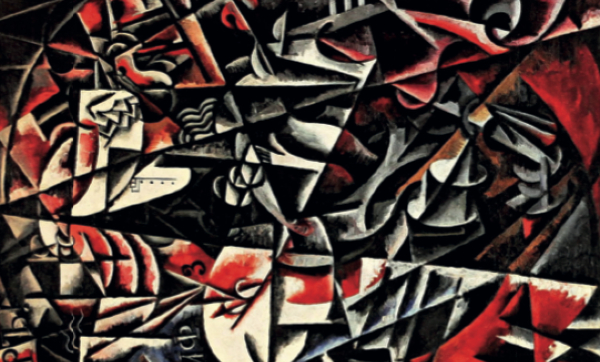
Storie di mobilità femminili nella creazione, traduzione e diffusione delle culture e letterature tra Asia ed Europa
23 november 2023 h 9.15am
Sala Marino Berengo, Ca' Foscari University Venice
Programme
9.15
Greetings
Sara De Vido (Delegata della rettrice alla parità di Genere)
Laura De Giorgi (Direttrice Dipartimento studi sull’Asia e l’Africa mediterranea)
Maddalena Barenghi (Centro Map)
Nicoletta Pesaro (AssM)
9.30-10.00
Laura De Giorgi (Università Ca’ Foscari Venezia)
Una stanza tutta per sé? Vite di donne italiane nella Cina della guerra fredda
10.00-10.30
Rossella Roncati (Università Ca’ Foscari Venezia)
La Chinoise: una controversa interprete del Novecento globale. Profilo di Maria Antonietta Macciocchi
10.30-11.00
Jovana Bogojevic (Università Ca’ Foscari Venezia)
Nada Marinkovic ́’s China Beyond the Stereotypes: A Spiritual, Socialist, and Anti-Colonialist Narrative in the 1950s
Break
11.30-12.00
Nicoletta Pesaro (Università Ca’ Foscari Venezia)
Tradurre letteratura, viaggiare (e far viaggiare) tra mondi e generi: riflessioni sulla figura di Anna Bujatti attraverso la sua biblioteca
12.00-12.30
Anna Di Toro (Università per stranieri di siena)
“‘Una traduzione che sappia di traduzione...’. Riflessioni sulla traduzione del Sogno della camera rossa nei materiali del Fondo Edoarda Masi” dell’Università degli Studi di Siena
Lunch Break
14.30-15.00
Caterina Mazza (Università Ca’ Foscari Venezia)
“Intepretare” la migrazione in Giappone: Salam (2006) di Shirin Nezammafi (1979)
15.00-15.30
Dario Miccoli (Università Ca’ Foscari Venezia)
“A Rodi non pioveva mai”: scrittrici ebree rodiote dopo la Shoah
Break
15.45-16.15
Daniela Meneghini (Università Ca’ Foscari Venezia)
Il destino della voce: mobilità di storie femminili
16.15-16.45
Sephora Vallotton
Opportunità e costrizioni nella trasmissione della parola femminile dall’area persiana all’Europa
16.45-17.15
Final Discussion, Q&A

Service - Duty - Care: Theorizing Civic Engagement from Asia to Europe and Beyond
28/06/2023 (h.9.30-16.50), 29/06/2023 (h.09.45-13.00)
Aula A, Palazzo Vendramin (closed-door event)
Research on civic engagement – from humanitarianism to charity – points to the complex interplay of sentiments, emotions and convictions that motivate people to act. These range from ethics rooted in religious frameworks, to commitment to kin and surrounding social networks, to NGO-driven humanitarian discourse, to moments of national awakening, as powerfully illustrated by the example of volunteering in the war in Ukraine. In this regard, the concept of care has been extensively discussed in diverse bodies of literature across the humanities and social sciences. Meanwhile, the concepts of service and duty have received little attention, despite the prominent role that they play in articulating different forms of “doing good.” In this workshop, participants will collaboratively theorize service and duty in relation to care. They will thereby investigate how a focus on service and duty might illuminate new aspects of care and how the rich literature on care can help to theorize service and duty from anthropological and historical perspectives.
This workshop is financed through the Swiss National Science Foundation funded Eccellenza project “Quiet Aid: Service and Salvation in the Balkans-to- Bengal Complex” (grant number PCEFP1_203319), based at the Geneva Graduate Institute.
Workshop convenors
Prof. Dr. Till Mostowlansky, Geneva Graduate Institute
Dr. Giuseppe Bolotta, Ca’ Foscari University of Venice

La Cina in Asia Centrale
prospettive multidisciplinari
10 February 2022, h 2.30pm
Palazzo Paolo Prodi, Trento
2.30pm
Institutional greetings
Marco Gozzi, Dipartimento di Lettere e Filosofia, Università di Trento
Stefano Schiavo, Scuola di Studi Internazionali, Università di Trento
Luca Maria Olivieri, Centro di Ricerca Marco Polo, Università Ca’ Foscari Venezia
Introduction: Sofia Graziani, Università di Trento
2.45pm
Opening speech
Stefano Ravagnan, già Ambasciatore in Kazakhstan e socio fondatore di OACC
3.15-4.30pm
First session: la proiezione cinese
introduction and moderation: Sofia Graziani, Università di Trento
Il discorso sull’Asia Centrale nei dibattiti accademici cinesi dopo il lancio della Belt and Road Initiative
Giulia Sciorati, Università di Trento
Corridoi economici e confini etnici: il ruolo del Xinjiang nella proiezione economica cinese in Asia Centrale
Alessandro Rippa, Università di Tallinn
Il ruolo della Cina nel settore petrolifero del Kazakhstan dall’indipendenza a oggi
Paolo Sorbello, Università Ca’ Foscari Venezia
4.15-4.30
Discussion
4.45-6.00
Second session: la Cina tra cooperazione e competizione regionale
Introduction and moderation: Andrea Fracasso, Università di Trento
La dimensione energetica della proiezione cinese e della competizione di potenza in Asia centrale
Carlo Frappi, Università Ca’ Foscari Venezia
L’Asia Centrale nella strategia russa della Grande Eurasia
Aldo Ferrari, Università Ca’ Foscari Venezia
La protezione del patrimonio culturale come veicolo di cooperazione (e conflitto) nello spazio centroasiatico: nuove traiettorie e modalità di intervento?
Alessandra Russo, Università di Trento
5.45-6.00pm
Discussion
18.00-18.20
Conclusive remarks
Aldo Ferrari e Guido Samarani, Università Ca’ Foscari Venezia
For further information check the online agenda
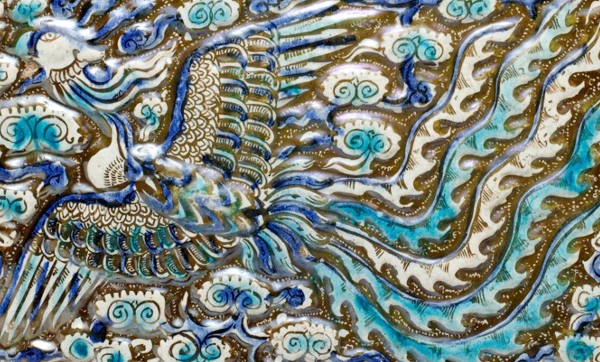
Marco Polo Encounters on Iran and the Persianate World - Side Event
The Persianate World and East Asia: Cultural Interactions and Mutual Perceptions (1250-1500)
20 May 2021 4pm
Online workshop
An international workshop convened by Francesco Calzolaio
Francesca Fiaschetti (University of Vienna), “Persian and Central Asian Intellectuals in 14th Century China”
Kaveh Hemmat (Benedectine University, US), “Civic Lore of the Chinese State from Khatayi's Book of China to Alisher Navai's Farhad and Shirin”
Yusen Yu (Oxford University), “Chinese Painters in Pre-Modern Iran”
Francesco Calzolaio (University of Venice), “The Ilkhanid Historian Rashīd al-Dīn and Chinese Language”
The workshop will be moderated by Laura De Giorgi (University of Venice) and Stefano Pellò (University of Venice)
May 20th, 2021, 4pm - 7pm
Please register at the following Zoom Link
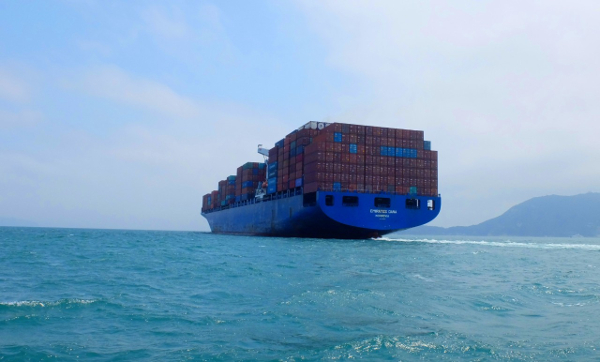
The Belt and Road Initiative. Perceptions from Japan, Pakistan, and Iran
18 February 2020
Venue: Aula Baratto, Dorsoduro 3246, Venice - 9am -1pm
This Colloquium will focus on how different Asian countries (either governments or civil society) perceive China, its foreign policies, its growing international role and the Belt and Road initiative.This is the first of a series of conferences, Colloquia, that will host high level scholars to talk about a number of relevant topics.
Lecturers
Tiziana Lippiello: Ca' Foscari University's ProrettriceProfessor of Classical Chinese, Religions and Philosophy of China at the Department of Asian and North African Studies, Ca’ Foscari University Venice
Guido Samarani: Marco Polo Centre's DirectorProfessor of History of Contemporary China at the Department of Asian and North African Studies, Ca’ Foscari University Venice
Aldo Ferrari: Marco Polo Centre's Deputy DirectorProfessor of Armenian Culture, History of the Caucasus and Central Asia, and History of the Russian Culture at the Department of Asian and North African Studies, Ca’ Foscari University Venice
Anoush Ehteshami: Professor of International Relations in the School of Government and International Affairs, Durham University. He is also the Nasser al-Mohammad al-Sabah Chair in International Relations and Director of the HH Sheikh Nasser al-Mohammad al-Sabah Programme in International Relations, Regional Politics and Security. He is, further, Director of the Institute for Middle Eastern & Islamic Studies (IMEIS) at Durham, one of the oldest and noted centres of excellence in Middle Eastern studies in Europe.
Shafei Moiz Hali: National Defence University, Islamabad, Pakistan.He has written extensively on Chinese foreign policy as well as on China’s Belt and Road Initiative.
Axel Berkovsky: Professor at the University of Pavia and Co-Head of Asia Center at ISPI. Berkofsky is also a regular contributor to the Zurich-based International Security Network (ISN), the Asia Times, as well as to other newspapers, journals and magazines on Asian politics and security, EU-Asia relations, Japanese domestic and foreign, Chinese foreign policies and North Korea
Past Workshops
| Brussels Looks East 29 October 2019 | 1.36 M | |
| Study Retreat on Ecology and Society along the New Silk Roads 16-18 September 2019 | 538 K |
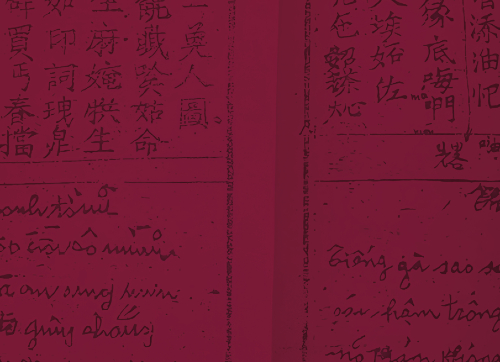
5th annual International Symposium of Vietnamese Linguistics
30-31 January 2025
Aula Rio Novo, Rio Nuovo Campus, Calle Larga Ca’ Foscari, Dorsoduro 3861, Venice
30 January 2025
- 9.00-9.15 (Venice time) Welcome speech (Trang Phan & Giorgio Francesco Arcodia)
PANEL 1: SEMANTICS & PRAGMATICS
- 9.15-10.00 Trần Phan (National Tsing Hua University) & Barbara Meisterernst (University of Stuttgart), Vietnamese há from a diachronic syntax perspective
- 10.00-10.45 Yi-Ling Liao & Jonah Lin (National Tsing Hua University), The “wh-adverbs” vì sao / tại sao ‘why’ in Vietnamese as verbs
- 10.45-11.15 Coffee Break
- 11.15-12.00 Anh La (University College London), Quantifier scope in Vietnamese
- 12.00-12.45 Tue Trinh (ZAS), Polar questions with narrow focus in Vietnamese: another argument for the bi-clausal analysis
- 12.45-14.15 Lunch break
PANEL 2: PHONOLOGY & MORPHOLOGY
- 14.15-15.00 Masaaki Shimizu (Osaka University), The role of Thi Vận Tập Yếu in the formation of modern Sino-Vietnamese readings
- 15.00-15.45 Vũ Đức Nghiệu (Vietnam National University Hanoi) & Mark Alves (Montgomery College), Recategorizing Wang Li’s proposed Vietnamized Sino-Vietnamese Vocabulary as early Chinese loanwords
- 15.45-16.15 Coffee break
- 16.15-17.00 Tạ Thành Tấn (Hanoi University of Education) & Marc Brunelle (University of Ottawa), Reversed register in Cuối Chăm and other Vietic languages
- 17.00-17.45 Sandrien van Ommen (University of Geneva), Serial verb constructions in Vietnamese
- 17.45-18.30 Andrew Simpson & Linh Pham (University of Southern California), The syntax of null possessors with kinship terms and body parts nouns in Vietnamese
- 19.00 Conference Dinner
31 January 2025
PANEL 3: SYNTAX
- 9.00-9.45 Invited talk: Nigel Duffield (Konan University), Whys and wherefores of the Vietnamese left periphery
- 9.45-10.30 Trần Phan & Wei-Tien Dylan Tsai (National Tsing Hua University Taiwan), Modal readings of tense markers in Vietnamese
- 10.30-11.00 Coffee break
- 11.00-11.45, Carla Ferrerós Pagès (Universitat de Perpinyà Via Domícia and Universitat de Girona) & Albert Badosa Roldós (Université Sorbonne Nouvelle - Paris 3 / LACITO), A preliminary study on Malieng classifiers: the syntax and semantics of body parts and fruits quantified expressions
- 11.45-12.30 Trang Phan, Giorgio Francesco Arcodia (Ca’ Foscari University of Venice), Nguyễn Tuấn Cường (Institute of Sino- Nom Studies, Vietnam Academy of Social Sciences) & Masaaki Shimizu (Osaka University), Tracing the development of bất, vô, and phi in Vietnamese: A diachronic study from the 13th to the 20th century

ASIAC XVIII Annual Conference
December 9-10-11, 2024
Ca' Foscari University of Venice
Ca’ Foscari University of Venice will host the annual conference of the Italian Association for the Study of Central Asia and the Caucasus (ASIAC).
The Conference aims to foster scientific dialogue between scholars working on these geographical areas from Italy and abroad.
This edition will include a Special Section entitled “Connections, Mobilities, and Infrastructures in Central Asia and the Caucasus throughout the Centuries”.
Further information and detailed programme at this link.

Transregional Exchanges on Marco Polo’s Routes: Networks, Mobilities, and Cultural Transfers
December 4-6, 2024
Aula Magna Silvio Trentin, Ca’ Dolfin
The conference explores transregional religious, material, and cultural mobilities and exchanges between Asia and Europe using Marco Polo as a broad historical reference. The conference will host two keynote lectures and four panels with international and internal guests. The conference is organized by the Marco Polo Center for Global Europe-Asia Connections and the Department of Asian and North African Studies at Ca' Foscari University of Venice, and ISMEO – The International Association for Mediterranean and Oriental Studies.
Organizing committee: Maddalena Barenghi, Eugenio De Angelis, Emiliano Fiori, Jacopo Scarin
More information at the following link
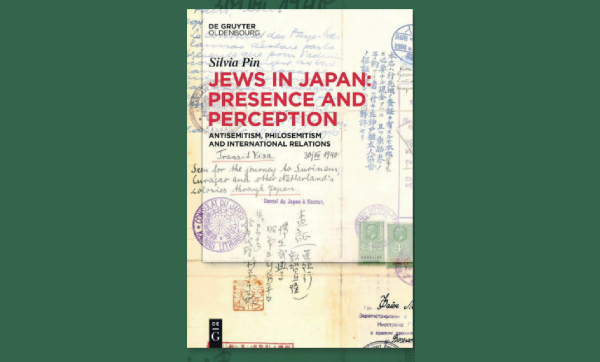
Jews in Japan: Presence and Perception
December 3, 2024
Aula Silvio Trentin Ca’ Dolfin, Dorsoduro 3246
Book presentation
by Silvia Pin (graduate in Comparative International Relations at Ca' Foscari University of Venice and currently a doctoral candidate in History at the University of Pavia)
Rosa Caroli and Marcella Simoni converse with the author
Coordinator: Marco Zappa
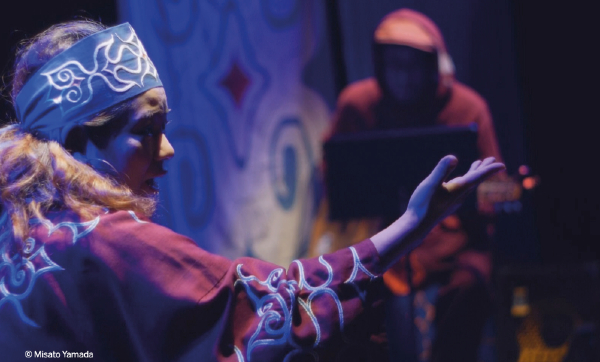
Concert of traditional ainu music and dance
26 October 2024, 5.00pm
Auditorium Santa Margherita - Emanuele Severino, Dorsoduro 3689 Venezia
With the participation of Misato Yamada and Yoko Toyokaw
Introduction by Elia Dal Corso and Carolina Consolar
Free entrance subject to availability

King in the Discernment of Subtleties (察微王)
The Intellectual Legacy of Stefano Zacchetti (1968-2020)
25 October 2024, 9:30am
Aula Magna, Ca’ Dolfin - Sala A, Palazzo Vendramin dei Carmini and online
Organizing Committee
Attilio Andreini, Nicoletta Pesaro, Sabrina Rastelli, Francesca Tarocco
Link di invito Zoom
Passcode: B5EfYz
Download the full programme at this link
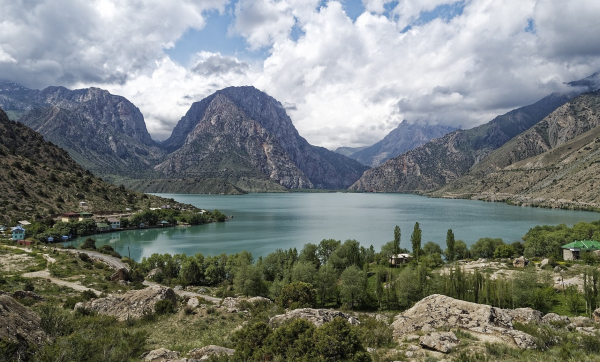
L'Asia Centrale vista dall'Italia. Verso una cooperazione multidimensionale
17 May 2024, 4 pm
Sapienza Università di Roma, Dipartimento di Scienze Politiche, Sala Lauree, Piano Terra
Introduction
Luca Micheletta
Director of the Doctorate in "Political Studies", Department of Political Science, Sapienza University of Rome
Moderator
Gabriele Natalizia
Coordinator of the Geopolitica.info Study Centre
Speakers
Federico Failla
Coordinator of the Italy-Central Asia '1 +5' Ministerial Meeting, MAECI
Ludovico Serra
Head of the Unit for the Russian Federation, Eastern Europe, the Caucasus and Central Asia at DGAP, MAÉCI
Filippo Costa Buranelli
Professor at the School of International Relations, University of St. Andrews
Giulia Sciorati
Researcher at the Department of International Relations, London School of Economics and Political Science
Carlo Frappi
Professor at the Department of Asian and North African Studies, Ca' Foscari University of Venice

A typical indigenous language of the Eastern Caucasus: Rutul, and its regional context
11 March 2024, 12.15am
Aula 24 - San Sebastiano and Aula Nova - Santa Marta
Gilles Authier
École Pratique des Hautes Études, Paris
12.15-13.45
Aula 24 - San Sebastiano
and
14.00-15.30
Aula Nova - Santa Marta
Among the indigenous languages of the East Caucasus, the Lezghic group is the most ramified, with a dozen languages spoken in southern Dagestan and northern Azerbaijan. One of the least studied languages is Rutul. It comprises several highly differentiated dialects, so much so that the two dialects spoken in Azerbaijan, in the Sheki region, must be treated as a separate language. This displays all the typical features of this language family, which will be outlined in this lecture.
Organizer: Elisabetta Ragagnin

1930s’ Mongolia: Politics in Film and Reality
8 March 2024, 2pm
Aula Saoneria, Ca’ Dolfin, Venezia
Ulrike Gonzales
Humboldt-Universität zu Berlin
1930s’ Mongolia: Politics in Film and Reality
Presentation and screening of the first Mongolian feature film:
Mongolyn khüü – Son of Mongolia (1936)
The Mongolian People's Revolution in 1921 and the establishment of the socialist state brought about profound social change for Mongolian society. In the 1930s, Mongolia found itself caught in geostrategic conflicts between the Soviet Union, Japan, and China. On the example of the first Mongolian feature film, we will explore the political and social situation of that time and discuss how film as a new medium was used for political information and education.

Un enigma medievale in Asia orientale al tempo di Marco Polo
L’incontro in Cina tra il missionario Giovanni da Montecorvino e un discendente del Prete Gianni
9 February 2024
Sala A, Palazzo Vendramin ai Carmini
Maurizio Paolillo
Università degli Studi di Napoli “L’Orientale”
Discussant: Raissa De Gruttola
Dipartimento di Studi sull’Asia e sull’Africa Mediterranea - Università Ca’ Foscari Venezia
More information (in Italian) on the webpage Un enigma medievale in Asia orientale al tempo di Marco Polo [ITA].
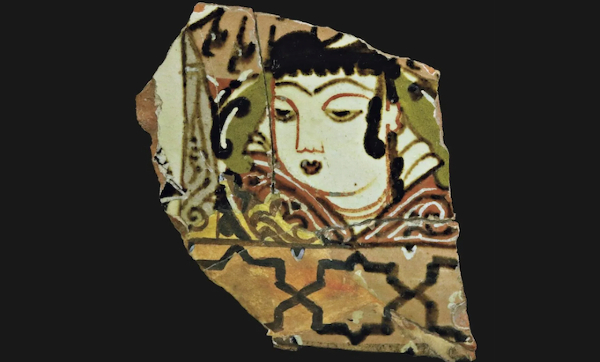
Qarakhanid Silk Roads and Beyond
1 December 2023
Sala A, Palazzo Vendramin ai Carmini
Dr. Dilnoza Duturaeva, Lecturer in Medieval History, University of York
Dr. Duturaeva discusses trans-Asian trade along the Silk Roads in the period between the fall of the Tang dynasty and the rise of the Mongols. Specifically, she will focus on the “renewal” of the overland routes connecting China, Central Asia, and Europe in the 11th century under the Qarakhanid patronage. By examining dynastic histories, official documents, history works, diaries and travelogues as well as art objects and maps, she aims to explore the intricacies of trade, commodities, and economic diplomacy along the global caravan routes prior to the Mongol era.
Recent publication: Qarakhanid Roads to China: A History of Sino-Turkic Relations. Leiden: E. J. Brill, 2022.
Discussant: Professor Chen Hao (Shanghai Jiaotong University)
For online attendance please register here
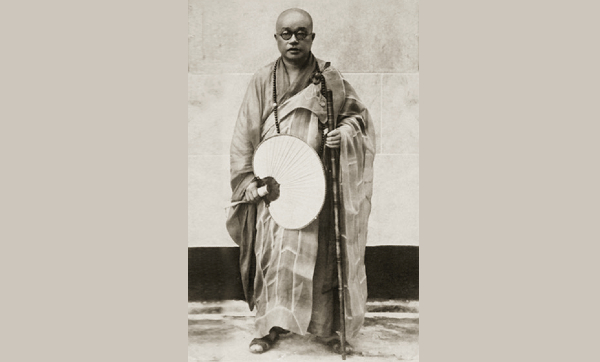
Taixu: A Buddhist Monk's Quest for Modernity
19 October 2023
Sala A, Palazzo Vendramin ai Carmini
Prof. Bart Dessein, Ghent University
Abstract:
Taixu (1889-1947) has become known as one of the most, if not the most important reformer of the Buddhist doctrine and organisation of the early modern period. His name is, more precisely, connected to the creation of so-called 'renjian fojiao' (Buddhism among the people). In this lecture, it will be outlined how, in crafting 'renjian fojiao', Taixu was inspired by elements of Christianity, Socialism, Anarchism, Nationalism and Confucianism, and can thus be seen as an important representative of how the Chinese intellectual world was coping with the fundamental changes in Chinese society at the turn of the 20th century.
Prof. dr. Bart Dessein (PhD in Oriental Languages and Cultures, Ghent University 1994) is senior full professor at the Department of Languages and Cultures of Ghent University. His research concerns the philosophical traditions of South and East Asia, modern and contemporary history of China, Chinese political philosophy, and New Confucianism. He is Member of the ‘Royal Academy for Overseas Sciences’ (Belgium) and Vice-Director of the ‘School for Comparative Philosophy’ (Antwerp). He also is Honorary Professor at Liaoning University and Guest Professor at Shanghai University. From 2016 to 2022, he was the President of the ‘European Association for Chinese Studies’. He is currently the Principal Investigator of the EU Project 'Reconnect China'.
This conference is organised by Laura De Giorgi and Nicoletta Pesaro
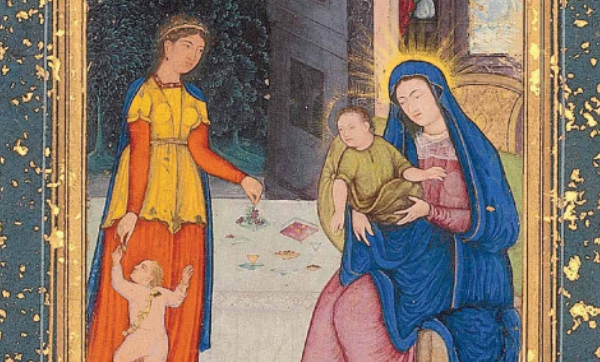
The Inexorable Conversation: Islamo-Christian Contacts and Contests in Early Modern Eurasia
12 October 2023
Aula Baratto Ca’ Foscari - Dorsoduro 3246
Chair: Stefano Pellò
9.20-10.00
Boghos Levon Zekiyan
Cristianesimo e Islam: Esperienze di conflitto e convivenza
10.00-10.30
Michele Bernardini
Timur and the Christians: Massacres and Opportunistic Alliances
10.30-11.00
Sinem Casale
Visions of Christians before the Shah and the Padshah
Discussion/Coffee break
Chair: Paolo Lucca
11.20-12.20
Jorge Flores and Giancarlo Casale
Indo-Persian Conversions and the Portuguese Inquisition:
Jorge Flores
A ‘New Christian’ from Elvas and an ‘Old Christian’ from Mardin
Giancarlo Casale
Qadi of Hormuz’s Son Becomes a Catholic – Or Does He?
12.20-12.50
Stefano Pellò
Unigenita Materia: Early Modern Persian Poetry and the Travels of Italian Natural Philosophy to Isfahan and Delhi
Discussion
13.15-15.00
Lunch break
Chair: Aldo Ferrari
15.00-15.30
Rudi Matthee
Shah Sultan Husayn and the Christians: New Julfa’s Armenians and European Missionaries in Late Safavid Iran
15.30-16.00
Paolo Lucca
Prodigal Sons or Schismatics? Strategies and Dynamics of Conversion between European Missionaries and New Julfa Armenians in the Age of Confessionalization
16.00-16.30
Ali Aydin Karamustafa
Çomar Bölükbaşı, the Ottoman Janissary-turned- Celali: Muslim and Christian Accounts of His Story
Discussion/Coffee break
Chair: Boghos Levon Zekiyan
16.50-17.20
Benedetta Contin
Local Literary Culture and Christian Armenian Society in the late Byzantine and Early Ottoman Peripheries
17.20-17.50
Aldo Ferrari
L’Église arménienne et l’Empire russe
17.50-18.20
Abbas Siavash Abkenar
From Vernacularization to Revolution: The Armenian Role in Qajar Statecraft and Social Transformation
Final discussion
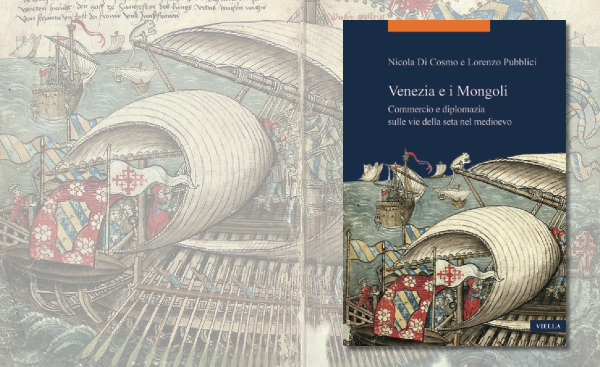
Book presentation
Venezia e i Mongoli
Commercio e diplomazia sulle vie della seta nel medioevo (secoli XIII-XV)
by Nicola Di Cosmo and Lorenzo Pubblici
23 June 2023, 3pm
Aula Baratto Ca’ Foscari - Dorsoduro 3246
Institutional greetings
Tiziana Lippiello
Rettrice Università Ca’ Foscari Venezia
Introduces and moderates
Aldo Ferrari
Università Ca’ Foscari Venezia
Intervention of the authors
Nicola Di Cosmo
Institute for Advanced Study (Princeton, USA)
Lorenzo Pubblici
Università di Napoli l’Orientale
More information (in Italian) at this link

Il colonialismo nascosto. Storia e antropologia in Thailandia e in Grecia - comparazioni sovversive
18 May 2023, 3pm
Aula Padoan, San Sebastiano
Speaker: Prof Michael Herzfeld (Harvard University)
In conversation with Giuseppe Bolotta (DSAAM, Cà Foscari)
Organizers: Giuseppe Bolotta (DSAAM, Cà Foscari)
Franca Tamisari (DSU, Cà Foscari)
Crypto-colonialism: History and anthropology in Thailand and Greece - subversive comparisons
Abstract
Colonialism has been the object of multiple studies. Less known in this field of scholarship are the instances of cultural control exercised by Western powers on several countries that have been “allowed” to present themselves as "independent nations", but only on the condition that they agreed to comply with European cultural norms, generating effects of overall humiliation that are still felt today. Thailand and Greece both represent conditions of indirect colonialism, in which the combination of adulation and resentment of powerful Western nations produce a contradictory set of attitudes - especially the prudery emphasis on bourgeois notions of respectability and restrictions on the scope and content of scholarship. In both these countries, as in Nepal and other countries in Asia and elsewhere, “crypto-colonialism” is a historical phenomenon that continues to influence the shape of class relations and geopolitical attitudes, as well as the cultural processes on which national identities are grounded, always under the terms and conditions imposed by both yesterday’s and today’s colonial and neoliberal forces.

Marco Polo Encounters on Iran and the Persianate World
curated by Stefano Pellò
Ottomans, Safavids, and the "Ethnographic Impulse": A New Approach to Culture and Imperalism
18 May 2023, 3.45pm
Ca' Dolfin, Aula 2
One of the great unresolved questions of Ottoman intellectual history during the early modern period is the apparent lack of an "ethnographic impulse," in other words, a sustained, state-sanctioned intellectual project to identify, catalogue, and describe the cultural and linguistic diversity of both the empire's territory and that of its neighbors. In recent scholarship, this "curiosity deficit" has typically been considered from a Eurocentric perspective, through a comparison between Ottoman intellectual life and that of early modern Europe. But in what ways might the question look differently if considered from the opposite direction, from the perspective of the empire's relations with its eastern neighbors in Iran?
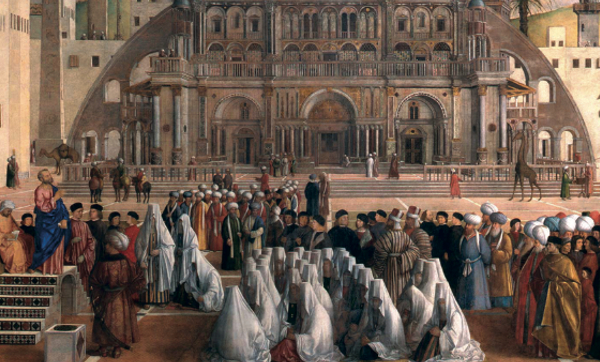
Riflessi e ombre nel Mar Bianco: Scambi e interazioni tra Europa, Impero ottomano e Turchia
30 June – 1 July 2022
Sala A, Palazzo Vendramin dei Carmini, Venice
Third Meeting of Italian Turcologists in honour of Giampiero Bellingeri
Riflessi e ombre nel Mar Bianco: Scambi e interazioni tra Europa, Impero ottomano e Turchia
You can find the programme at this link
Please register at this link
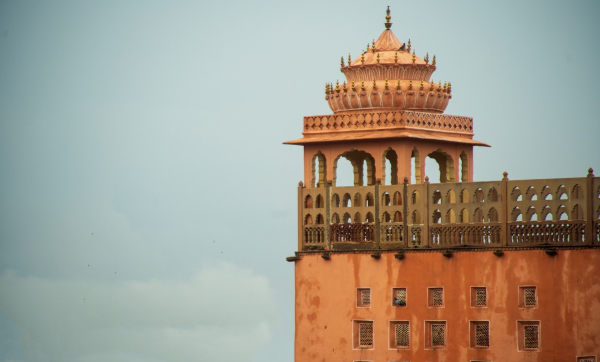
Reversing the gaze: In quest of a global Marco Polo
21 June 2022, 10am
Aula Magna Silvio Trentin, Ca’ Dolfin, Venice
Prof. Subrata K. Mitra
Emeritus Professor of Political Sciences, Heidelberg University, GermanyAdjunct Professor, Dublin City University (DCU), Dublin, Ireland
Moderator:
Prof. Antonio Rigopoulos, Università Ca’ Foscari, Venezia
Registration: link
Online participation: link
Passcode: 9h137m
For information: andrea.drocco@unive.it
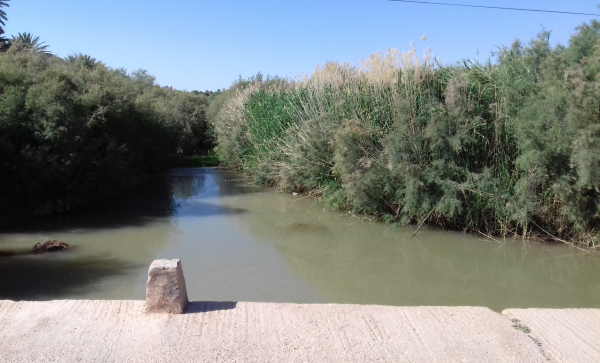
Third Meeting on Water: Contemporary Challenges in the Maghreb
23 May 2022, 9am
Bottacin, Aula B, Dorsoduro 3911
Annabelle Houdret (Deutsche Institut für Entwicklungspolitik)
The rural social contract in Morocco and Algeria: how water and land allocation shape the relations between the state, elites, and ordinary farmers
Nicholas Dines (Università Ca’ Foscari di Venezia)
The cultural geopolitics of water: contemporary Morocco and the Mediterranean Sea
Vladimiro Boselli (Università degli Studi di Padova)
Traditional Irrigation in the Anti-Atlas facing modernity
Organisers: Simone Cristoforetti (Università Ca’ Foscari di Venezia) Massimiliano Borroni (Università Ca’ Foscari di Venezia) e Vladimiro Boselli (Università degli Studi di Padova)
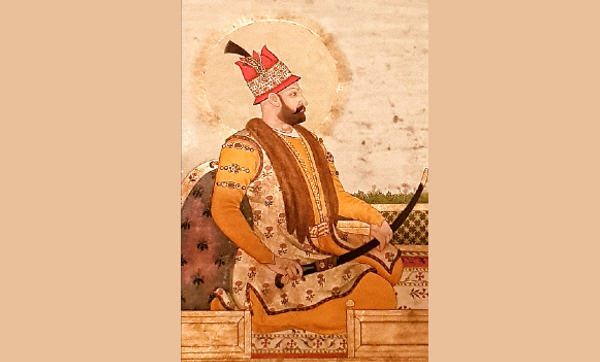
Tra la corte e la strada: nuove concezioni politiche nell’Iran del ‘700
17 May 2022, 3.45pm
Aula 8 Rio Novo
Marco Polo Encounters on Iran and the Persianate World
curated by Stefano Pellò
Dr. Ali Karamustafa (Stanford University)
Over the course of his rise to power and reign, Nader consistently argued that his Afshar and Turkmen affiliations granted him the right to rule over Iranian territory as an equal to his Ottoman, Mughal, and Central Asian contemporaries. Aided by his chief secretary and court historian, Mīrzā Mahdī Astarābādī, Nader’s assertions paralleled those found in popular narratives about the history of Oghuz Turks in Islamic lands. This element of Nader’s political identity is often overlooked by historians because it did not outlive the brief Afsharid period, but it demonstrates how the Safavid collapse led to the circulation of dynamic new claims to Iranian and Islamic political power.
Register at this link

Del mondo nuovo - Conversazioni intorno a "Global Perspectives in Modern Italian Culture"
12 May 2022, 2.30pm
Palazzo Vendramin dei Carmini and online
Round table
Guido Abbattista, Università di Trieste
Francesco Calzolaio, Università “Ca’ Foscari” Venezia
Laura De Giorgi, Università “Ca’ Foscari” Venezia
Girolamo Imbruglia, Università di Napoli “L’Orientale”
Mario Infelise, Università “Ca’ Foscari” Venezia
Paola Molino, Università di Padova
Stefano Pellò, Università “Ca’ Foscari” Venezia
Edoardo Tortarolo, Università del Piemonte Orientale “Amedeo Avogadro”
Please register at this link
Zoom: link
Curated by Laura De Giorgi e Stefano Pellò

Poetry as a modality of existence in contemporary Iran
5 May 2022, 5.30pm
Aula 6, Rio Novo
Setrag Manoukian, McGill University
introduction by Stefano Pellò
This talk considers the existential dimension of poetry in contemporary Iran by examining the power of poetry and its affects through an historical and ethnographic account mainly drawn from fieldwork in the city of Shiraz. As a counterpoint to narratives that discuss the relevance of the poetic tradition in Iran by focusing on nationalism, identity and politics as self-expression, this research foregrounds the idea of poetry as a relational form. Taking into account poetic assemblies and conversations with local poets, the talk reflects on the ways in which poetry unfolds its power by reconfiguring the latent tension between law and desire, undoing subject formation towards an impersonal existence.
Information: link
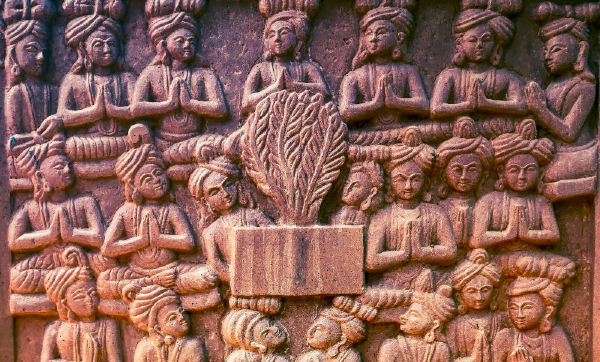
Second Conference on the Endangered Languages of East Asia
May 3rd-5th, 2022, 9am - 6pm
Aula Magna Silvio Trentin, Ca’ Dolfin, Venice
Second Conference on the Endangered Languages of East Asia
Time in endangered languages and endangered languages through time
May 3rd-5th, 2022
The Department of Asian and North African Studies at Ca’ Foscari University of Venice is pleased to announce the second meeting of the Conference on the Endangered Languages of East Asia (CELEA). The aim of CELEA is to gather at Ca’ Foscari University of Venice scholars, researchers, and other academics who work on endangered, indigenous, or minority languages spoken in the territories of East Asia. With this conference, the University wants to broaden its perspective on the linguistic diversity of the East Asian countries whose main languages are being taught in its Department of Asian and North African Studies. Thus the University hopes to raise an interest towards the less-known languages of Asia and foster active investigation on them, while giving researchers from all over the world the opportunity to meet and share their knowledge.
For further information, please visit the website or contact Elia Dal Corso, elia.dalcorso@unive.it
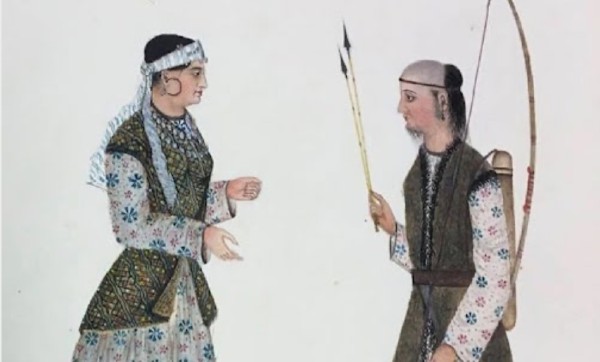
Space and Place in Nuristan
29 April 2022, 10.30am
Aula 5, Rio Novo - Venezia
Lecture series on Languages and Cultures in Afghanistan
Dr. Almuth Degener, Johannes Gutenberg-Universität Mainz
The lecture is public and open to all, but registration is required both for onsite attendance and for online attendance
Registration link for Zoom meeting: link
For onsite attendance, please register at: IT: link EN: link
Organised by Stefano Pellò, Elisabetta Ragagnin, Luca Maria Olivieri

Dari, Pashto and Balochi:Ethnolinguistic research in Afghanistan
4 April 2022, h 8.45-10.15
Aula D - Ca’ Cappello, Venice
Dr. Lutz Rzehak PD, Humboldt-Universität zu Berlin
Abstract
Lutz Rzehak works at the Central-Asian Seminar of Berlin Humboldt-University. He has been conducting ethnological and linguistic research in Afghanistan and neighboring regions for more than two decades. In his lecture, he will present the two most significant languages of Afghanistan, Dari and Pashto. The focus will be on their role in Afghanistan's multilingual milieu, on regional and social varieties, and on characteristic features as compared with close linguistic varieties in neighboring countries. Based on his own research experiences during field studies, Lutz Rzehak will analyze selected aspects of the linguistic behavior of the people in Afghanistan. In an excursus, the minority language Balochi will also be presented, for whose promotion and development Lutz Rzehak was invited to assist local language planning activities.
The lecture is public and open to all, but registration is required both for onsite attendance and for online attendance.
Registration link for Zoom meeting: link
For onsite attendance, please register at:
Link (Italian)
Link (English)
up to two days before the event
Organizers: Elisabetta Ragagnin, Luca Maria Olivieri, Stefano Pellò
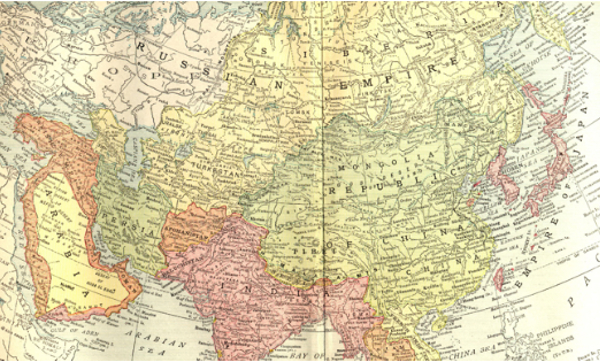
EUrAsia2022: La guerra in Ucraina vista dall’Asia orientale
23 - 24 March 2022
23 March 2022, h10am-12pm
Tokyo, Seul e Asia-Pacifico: prospettive sul conflitto e possibili sviluppi
Matteo Dian
Alma Mater Studiorum Università di Bologna
Giulio Pugliese
Istituto Affari Internazionali (IAI), European University Institute
Marco Milani
Alma Mater Studiorum Università di Bologna
Moderator: Marco Zappa, Università Ca’ Foscari Venezia
Registration (23 March): Link Zoom
24 March 2022, h10am-12pm
Pechino: protagonista o spettatrice?
Francesca Ghiretti
Mercator Institute for China Studies
Lorenzo Mariani
Istituto Affari Internazionali (IAI)
Barbara Onnis
Università di Cagliari
Guido Samarani
Università Ca’ Foscari Venezia
Moderator: Beatrice Gallelli, Università Ca’ Foscari Venezia & Istituto Affari Internazionali (IAI)
Registration (24 March): Link Zoom
Organised by: Department of Asian and North African Studies (Marco Zappa, Beatrice Gallelli); MaP - Marco Polo Centre for Global Europe-Asia Connections; IAI - Istituto Affari Internazionali; The Academy of Korean Studies
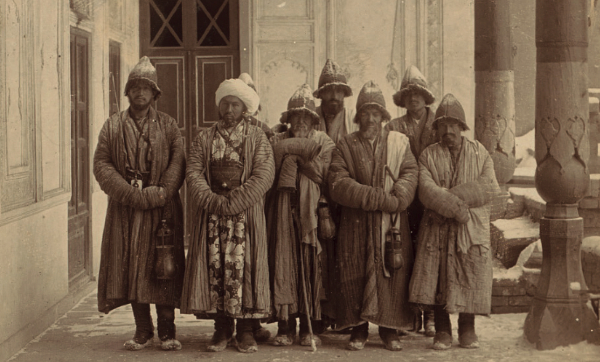
Dervishes along the Silk Roads between Past and Present
25 March 2022
Auditorium Santa Margherita
Organised by Thomas Dähnhardt (DSAAM), Giovanni De Zorzi (DFBC), Ca’ Foscari University of Venice
9.30-5pm
CONFERENCE
Thomas Dähnhardt (Ca’ Foscari University of Venice), Giovanni De Zorzi (Ca’ Foscari University of Venice), Jean During (CNRS, Paris), Jürgen Wasim Frembgen (Ludwig-Maximilians Universität München), Demetrio Giordani (Università di Modena Reggio Emilia), Alexandre Papas (CNRS, Paris), Stefano Pellò (Ca’ Foscari University of Venice), Thierry Zarcone (CNRS, Paris)
6pm
CONCERT of Sufi and Qalandari Music
Leyli Atashkar long necked lutes setâr and tanburag; Jean During, frame drum daf, fiddle sorud
For further information please check the event web page
Organised with the collaboration of Orient Experience
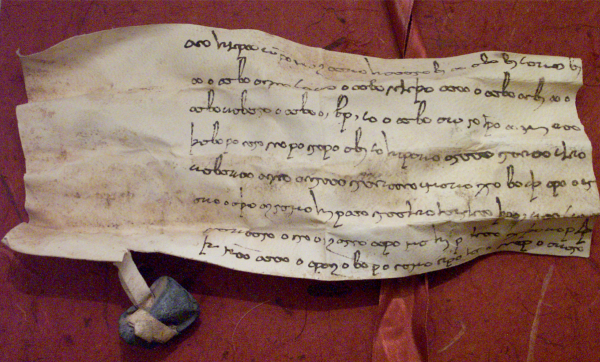
Early, Middle and Late Bactrian: seven centuries of linguistic development
11 March 2022, 15.30-17.00
Sala A - Ca’ Vendramin, Venice
Professor Nicholas Sims-Williams, University of Cambridge
Inscriptions and documents in Bactrian, the administrative language of pre-Islamic Afghanistan, are now known from the 1st to the 9th century CE and every century in between. The surviving texts, which come from various regions of Afghanistan and neighbouring countries, are very varied, including rock inscriptions, letters, legal and economic documents, Buddhist texts, coins and seals. This lecture will introduce the material, including recently discovered letters written on birchbark, and will discuss some of the linguistic changes which took place over a period of more than 700 years.
The lecture is public and open to all, but registration is required both for onsite attendance and for online attendance
Registration link for Zoom meeting: link
For onsite attendance, please register at:
IT: link
EN: link
Organizers: Elisabetta Ragagnin, Luca Maria Olivieri, Stefano Pello’
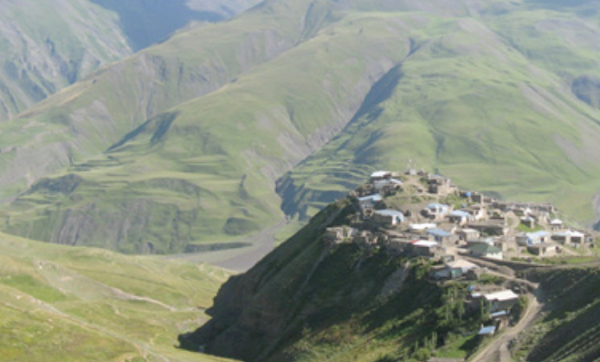
Le lingue caucasiche dell’Azerbaigian
25 February 2022, h 3.45pm
Sala A - Ca’ Vendramin, Venice
Prof. Gilles Authier, Directeur d’Etudes “Langues et philologie du Caucase” Ecole Pratique des Hautes Etudes (EPHE), Paris
A dozen minority languages are spoken in the Republic of Azerbaijan, most of which are related to those of neighbouring Dagestan.
These languages, which are very different from Azeri in every respect, are surprisingly diverse, even among themselves. Today they are all threatened and deserve to be better known and studied before they disappear.
The most salient features of these languages of northern Azerbaijan will be illustrated by characteristic examples and audio recordings in each of them (Lezgi, Kryz, Budugh, Khinalug, Udi, Rutul, Tsakhur, Avar Akhwakh and Bezhta).
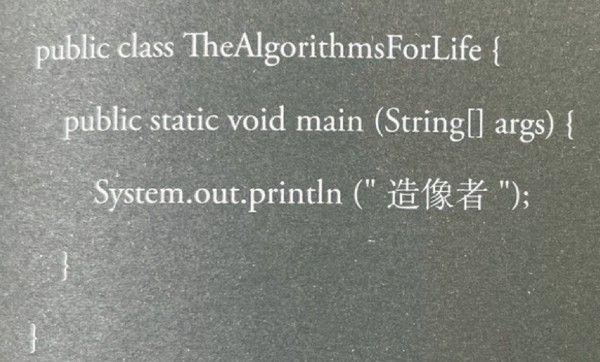
Come si racconta l’Antropocene? Tecnologia, adattamento, e sopravvivenza nella narrativa recente di Chen Qiufan
16 December 2021, h 5.30pm
Aula MF3, San Basilio
Paola Iovene (University of Chicago)
Introduction: Nicoletta Pesaro
Chen Qiufan, the author of the dystopian novel Waste Tide (Huangchao, 2013), has written several stories on the consequences that developments in AI may have on human life. Whereas the collection Algorithms for Life (Rensheng suanfa, 2019) reflects an ambivalent and playful attitude towards such developments, the stories included in AI in 2041: Ten Visions for Our Future (AI 2041: Yujian 10 ge weilai xin shijie/AI in 2041), co-authored with Taiwanese entrepreneur Kai-Fu Lee and published almost simultaneously in Chinese and English in July and September 2021, emphasize its advantages while minimizing its ethical and political implications. One of the many aspects that these stories do not consider is the environmental cost of artificial intelligence systems. This constitutes an important (though probably only temporary) change in the way the author tells the story of the Anthropocene.
For information and registration check this link
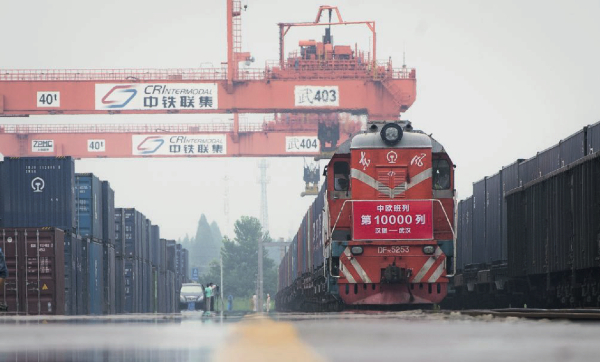
La Cina in Italia
13 December 2021, h 10am
Aula Magna Guido Cazzavillan, San Giobbe, Cannaregio 873, Venezia
Programme
10.00-10:15
Institutional greetings
10.15 – 10:25
Introduction
Beatrice Gallelli, Istituto Affari Internazionali & Università Ca’ Foscari
Part I: 10.30-11:30
La presenza cinese in Italia
Chair: Laura De Giorgi, Università Ca’ Foscari
Nicola Bilotta, Istituto Affari Internazionali
Lorenzo Mariani, Istituto Affari Internazionali
Francesca Ghiretti, Mercator Institute for China Studies
Part II: 11:45 -12:45
La Cina, l’Italia e l’Europa
Chair: Giulio Pugliese, Istituto Affari Internazionali & European University Institute
Guido Samarani, Università Ca’ Foscari
Renzo Cavalieri, Università Ca’ Foscari
Stefano Soriani, Università Ca’ Foscari
More information at this link

Second Meeting on Water: Imaginations and Concepts
24 November 2021, h 2pm
Meetings on Water host talks by scholars from often distant sciences and disciplines to show how water studies is a privileged field for multidisciplinary collaboration and the fruitful and sometimes unexpected convergence of different research approaches. In this second meeting the central theme will be the imagination and conceptualisation of water in economics, human geography and the humanities.
Prof. Edwige Tamalet Talbayev (Tulane University): Does the Mediterranean exist?
Prof. Stefano Pellò (Ca’ Foscari University of Venice): Waves, whirlpools and bubbles: on the waterscapes of early modern Persian poetry
MSc. Leila Khodabakhsh (Catholic University of Eichstätt-Ingolstadt): Manipulation of waterscape as a (mental) shortcut to development; the case of modernized Iran
Prof. Carlo Giupponi (Ca’ Foscari University of Venice): Some reflections on water resources, global change and sustainability
The talk will be broadcasted via Zoom. Registration required at this link
The event is organised by Massimilano Borroni (DSAAM, Ca' Foscari ) e dal dott. Vladimiro Boselli (University of Brescia).
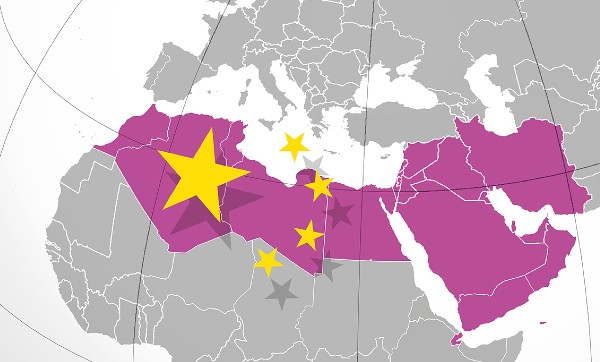
The MENA Countries and China Interests, Perceptions and Future Balances
10, 22 and 29 November 2021
Sofia Graziani, Università di Trento
Il protagonismo cinese in Africa nel XXI secolo: dalla cooperazione Sud-Sud alla retorica del ‘sogno cinese/sogno africano’
Chair: Laura De Giorgi, Università Ca’ Foscari di Venezia
Wednesday 10 November 2021, 11am-1pm.
Aula Magna Silvio Trentin - Ca’ Dolfin - Saoneria
Registration: link
Zoom Registration:link
Yahia Zoubir, KEDGE Business School
China’s foreign policy pragmatism and geoeconomics in the Middle East & North Africa
Chair: Maria Cristina Paciello, Università Ca’ Foscari di Venezia
Monday 22 November 2021, 3:45pm-5:15pm
Zoom registration: link
Sophie Zinser, Chatham House
Debunking China’s Role in the Middle East from the Ground Up: New Angles and Approaches
Chair: Francesco Saverio Leopardi, Università Ca’ Foscari di Venezia
Monday 29 November 2021, 12:15-1:45pm
Zoom registration: link
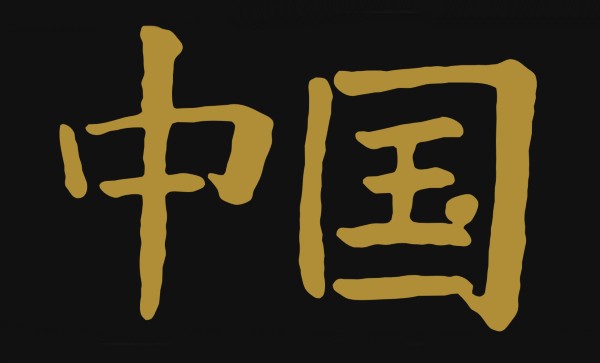
Presentazione a Ca' Foscari del numero 168 di “Mondo Cinese” su “Italia e Cina: cinquant’anni di relazioni diplomatiche”
12 November 2021, h 5.30pm
Aula MF 5 San Basilio and online
PROGRAMME
Introduction:
Renzo Cavalieri, Laura De Giorgi
H 5.30pm
Institutional Greetings
Mario Boselli, Presidente Fondazione Italia-Cina
Mons. Pier Francesco Fumagalli, Direttore Editoriale Mondo Cinese
H 5.45pm
Filippo Fasulo, ISPI
Guido Samarani, Università Ca’ Foscari Venezia Elisa Giunipero, Università Cattolica del Sacro Cuore Milano
Stefania Stafutti, Università di Torino
Magda Abbiati, Università Ca’ Foscari Venezia
H 6.45pm
Q&A
The conference will be held in Italian. For details check the online agenda
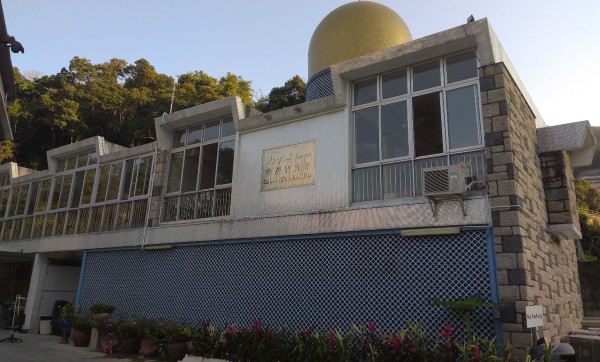
Two lectures by Wai-Yip Ho
27 and 28 October 2021
San Basilio and Santa Marta
From Neglected Problem to Flourishing Field: Review & Trends of Studying Muslims and Islam in China
Chair: Francesca Tarocco
Wednesday, October 27, 2021, 5:00 PM, Aula mf 1, San Basilio
Registration link for Zoom meeting: link
Hong Kong: From East-west Window to New Proxy War?
Chair: Laura De Giorgi
Thursday, October 28, 2021, 10:30AM, Aula Gradoni, Santa Marta
Registration link for Zoom meeting: link
Wai-yip Ho is currently the François Chevalier Fellow (2021-2022), Madrid Institute for Advanced Study (MIAS); Correspondent Member, Nantes Institute for Advanced Studies; Honorary Research Fellow, Institute of Arab & Islamic Studies, University of Exeter. He is the author of Islam and China’s Hong Kong: Ethnic Identity, Muslim Networks and the new Silk Road (Routledge: London, 2015, paperback).
This lecture is public and open to all, but registration is required both for onsite attendance and for online attendance.
For onsite attendance, please register at
IT: link
EN: link
up to one day before the specific conference
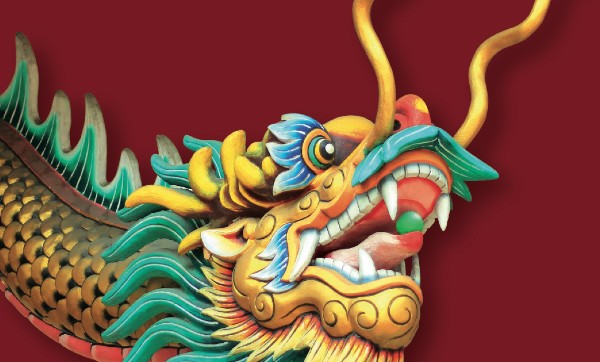
Finanza e potere lungo le Nuove Vie della Seta
15 September 2021
Aula Baratto and Ca’ Foscari CFZ Zattere / online
Professor Alessia Amighini (Università del Piemonte Orientale, Istituto di Studi di Politica Internazionale), author of the book Finanza e potere lungo le Nuove Vie della Seta (Università Bocconi Editore, 2021) discusses China's global political and financial repositioning with professors and young researchers from Ca’ Foscari University.
The conference will be held in Italian and will be organised in a blended way: it will also be broadcasted online, allowing distance participation. For practical information and Zoom link please check the event's webpage at this link.
Programme
Morning Session
Aula Baratto - Dorsoduro 3246, Calle Larga Foscari, 30123 Venice
h 9.45am
Welcome message - Rector Tiziana Lippiello
Introduction - Guido Samarani e Renzo Cavalieri
Part I h 10.00am– 11.30am
FINANZA: la globalizzazione del renminbi e le sue criticità
Monica Billio
Ignazio Musu
Elisa Barbieri
Giancarlo Corò
Part II h 11.30am – 1pm
POTERE: il riposizionamento internazionale della Repubblica Popolare Cinese
Guido Samarani
Fabrizio Marrella
Stefano Soriani
Daniele Brombal
Afternoon Session
Ca’ Foscari CFZ Zattere, Tesa 1 Dorsoduro 1392, Fondamenta Zattere, 30123 Venice
Part III ore 2.30pm – 4.30pm
Nuove Vie della Seta e nuove prospettive di ricerca
Ardita Osmani
Alice Politi
Marica Grego
Giulia Dalmaso
Cristian Luise
Thomas Trevisan
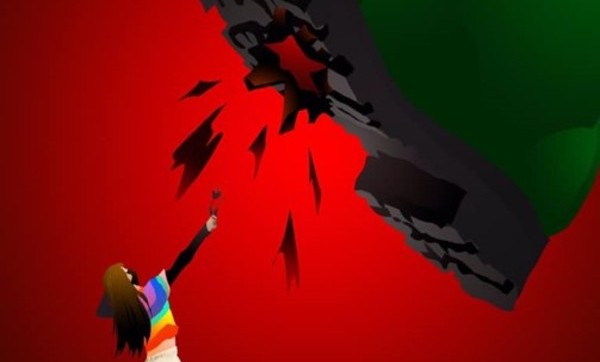
“Failure is Not an Option.” The Body Politics in Myanmar Spring Revolution
1 June 2021 11am
Online conference
Speaker: Khin Mar Mar Kyi, University of Oxford
Since the 1 February 2021 coup, Burmese people have shown manifold defiance against the Myanmar military. After a series of peaceful and creative protests, including tongue-in-cheek Mimi placards, cat-walks of queers, pageants, princesses, and the characters of Harry Potters as well as prayers of sprit mediums, frustrated young women weaponized their sarongs (skirts). The Burmese consider the sarong as a ‘polluted’ item and attach to it the power to destroy hpon (power and charisma), namely male innate supremacy. Specifically, a banner bearing the slogan “Our Sarong, Our Flag, Our Strike” challenged the military, famed for being an institution that acts on the basis of superstition, homophobia and misogyny. The military retaliated the provocation of young female protesters by using gender-specific violence and blaming the women for being “non-Buddhist Myanmar ladies”. This webinar will discuss the body politics of the Spring Revolution in Myanmar, and why young people feel “failure is not an option” to end the structural nature of gender-based violence and to build a sustainable democratic society.
The link for registration will be soon provided.
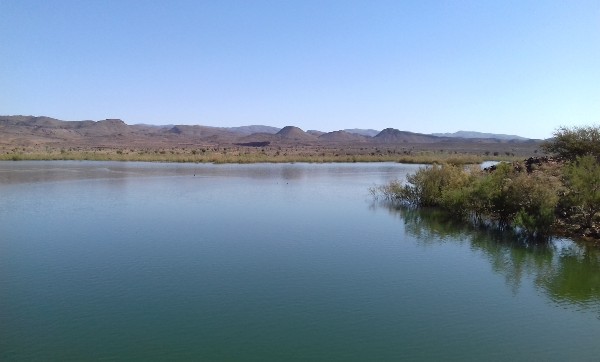
First Meeting on Water: Methods and Approaches
24 May 2021
Online conference
This first meeting will host talks by scholars from often distant sciences and disciplines to show how water studies are a privileged field for interdisciplinary collaboration and the fruitful and sometimes unexpected convergence of a variety of research approaches.
Programme
Prof. Francesco Vallerani (Ca’ Foscari University of Venice – UNESCO Chair on Water, Heritage and Sustainable Development)
Institutional Greetings
Dr. Massimiliano Borroni and Vladimiro Boselli ( Università degli Studi di Brescia)
The Interdisciplinary Nature of Water: Hydrology and World Philology
Prof. Maaike Van Berkel ( Nijmigen University)
Source of Life. Water Management in the Premodern Middle East
Dr. Giuseppina Ferriello (independent scholar)
Water and Ice in the Iranian desert: Qana ̄t, Cisterns and Iceboxes
Dr. Giulio Castelli (Università degli Studi di Firenze)
Participatory Research Approaches for Water Resources Management in Agro-Ecosystems
Dr. Federica Sulas (University of Cambridge)
Heritage Water Three Ways: Geoarchaeology, Community Knowledge & Development in Sub-Saharan Africa
Prof. Edwige Tamalet Talbayev (Tulane University)
Water Epistemologies
The talk will be broadcasted via Zoom.
Registration required at this Zoom Link.
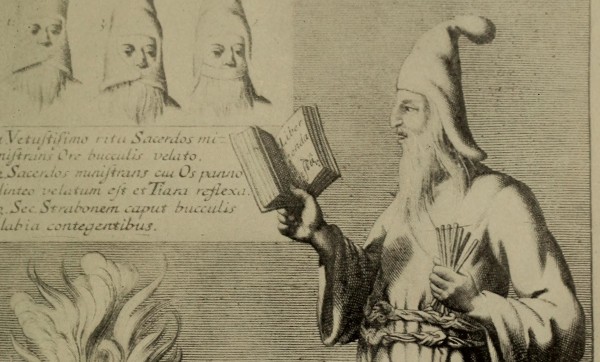
Marco Polo Encounters on Iran and the Persianate World - Side Events
11 and 18 May 2021
Online conferences
Alberto Bernard, Ecole Pratique des Hautes Etudes, PSL/CeRMI
Tuesday 11 May 2021 5pm
Ādur Gušnasp, Sasanian Kingship and the Etiologies of the Zoroastrian Fire Cult
The fire temple of Ādur Gušnasp (now Takht-e Suleymān in north-western Iran), a pivotal Zoroastrian sanctuary and Sasanian royal residence, was destroyed by the Roman emperor Heraclius in 624 CE. How did contemporaries interpret the event? A new reading of the Byzantine poet George of Pisidia’s Heraclias and a reconsideration of the etiologies of the Zoroastrian sacred fire current throughout Iran, Syria and Byzantium, may provide an answer.
Please register at this Zoom Link
Tuesday 18 May 2021 5pm
Thus Spake the Fire. The Voyage of a Literary Motif between Zaraθuštra, Mārūṭā and Mazdak
A striking narrative resemblance brings together the unrelated episodes of the Christian bishop Mārūṭā's mission at Yazdgerd’s I court told by the Greek church historian Socrates (5th c. CE) and the story of the Zoroastrian heretic Mazdak recounted by the Persian visir Niẓām al-Mulk (11th c. CE): an impostor feigns to make the Zoroastrian sacred fire speak with a stratagem but gets caught. This talk studies the origin, transmission and developments of this literary motif between the legend of Zaraθuštra and the deuterocanonical stories on Daniel.
Please register at this Zoom Link
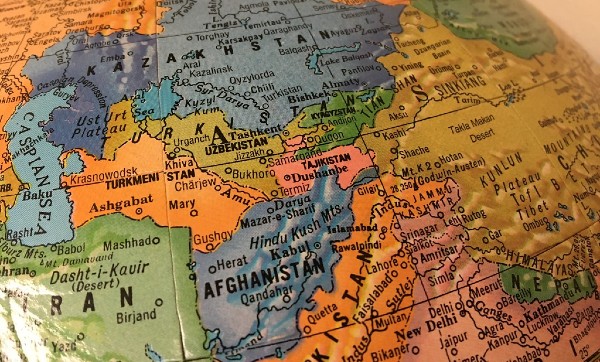
Central Asia in Italian perspective. Status and prospects for collaboration
13 May 2021 10.15am
Online conference
Over the last few years, Central Asia has been attracting growing interest from institutions, the business world and the Italian academics. Driven by the traditional attractiveness of the regional energy sector and reinvigorated by the centrality assumed by Central Asia in the development of trans-continental transport networks, interest in the area is now taking on a broader multidimensional nature.
This conference aims to outline the framework of relations between Italy and Central Asian interlocutors, taking into consideration both their more traditional vectors and the areas that seem to be of particular importance for their expansion.
The conference is organised by the Marco Polo Centre for Global Europe-Asia Connections (MaP) - Ca 'Foscari University of Venice, in collaboration with the Osservatorio sull'Asia centrale e sul Caspio (OACC) and with the study center Geopolitica.info
This conference will be held in Italian. Please register at this LINK
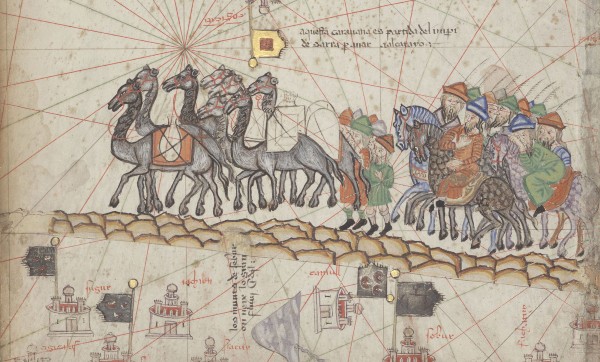
ReOrienting Histories of Medicine: Encounters Along the Silk Roads
4 May 2021 2pm
Online lecture
Join the conversation between Ronit Yoeli-Tlalim about her new book, ReOrienting Histories of Medicine: Encounters along the Silk Roads, T. H. Barrett and Francesca Tarocco. The book is the product of many years of research with rare manuscripts in a variety of languages. It shows how much of premodern Eurasian medicine was predicated on multidirectional interactions and knowledge traffic across cultures.
This is an important study for anyone interested in the medical humanities and global history. It has been labelled as an “impressive breakthrough in Silk Road studies” by Prof. Valerie Hansen, Yale University.
Here is a link to the Preface and Introduction
Registration is required. Please email hsc@unive.it to receive the link.
T.H. Barrett is an Emeritus Professor in the Department of Religions and Philosophies at SOAS University of London and a leading scholar of medieval China. His research interests focus on the history of Chinese religion, notably Taoism and Buddhism, and pre-modern Chinese history, especially the Tang period. He is the author of Taoism under the Tang: Religion and Empire during the Golden Age of Chinese History (1996) and The Woman who discovered Printing (2008).
Ronit Yoeli-Tlalim is Reader in History at Goldsmiths, University of London, UK. She is the co-editor of Rashid al-Din: Agent and mediator of cultural exchanges in Ilkhanid Iran (2013), Islam and Tibet: Interactions along the Musk Routes (2010) and Astro-Medicine: Astrology and Medicine, East and West (2008).
Francesca Tarocco is an Associate Professor of Chinese Religious History at Ca' Foscari University of Venice, Center for the Humanities and Social Change. She is the author of The Cultural Practices of Modern Chinese Buddhism (2011) and Altar Modern: Buddhism and Technology in Modern China (forthcoming).
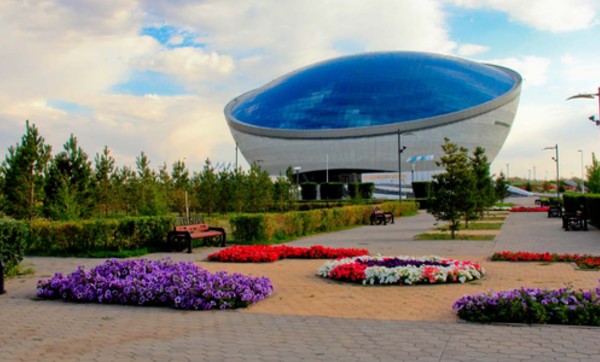
Kazakhstan’s Pathway out of the Global Crisis
21 Apr 2021 10pm
Online conference
On March 19, 2019, after three decades in power, Nursultan Nazarbayev resigned from his post as President of Kazakhstan, initiating a slow-paced succession. Surprising observers and residents, Nazarbayev handed out power to Kassym-Jomart Tokayev a loyal politician and seasoned diplomat. Effective change, however, followed sluggishly. A double crisis ensued in 2020: a sharp fall in oil prices and the COVID-19 pandemic led to an economic slowdown that has continued until now. After Nazarbayev’s exit, the response from investors was lukewarm and youth groups asked for more thorough reforms. The global pandemic hindered a full-fledged economic transition and posed new challenges for the future governments of the country. Two years after Nazarbayev resigned, an analysis of the new (geo)political and economic environment is warranted.
Programme
Welcoming Addresses
h. 10:00 – 10:15
Aldo Ferrari, Deputy Director MaP, Ca’ Foscari University of Venice
Carlo Frappi, Ca’ Foscari University of Venice and OACC
Keynote Speech
h.10.20 - 10.45
Nurbek Yergeshbayev, Economic Research Institute, Nur-Sultan Kazakhstan’s response to economic crises
1st Panel
Power Transition Two Years Year On
h. 11:00 – 12:30
Chair: Stefano Ravagnan, Former Ambassador to Kazakhstan and Board Member at OACC
Shalkar Nurseitov, independent political analyst, Political Transition
Dina Sharipova, Nazarbayev University, Nur-Sultan, Power dynamics since 2019 Roman Vakulchuk, NUPI, Oslo State & Markets: Doing Business
2nd Panel
The Changing Geopolitical Map
h. 12:45 – 14:15
Chair: Paolo Sorbello, Ca’ Foscari University of Venice
Ernesto Gallo, Regents University, London Kazakhstan and the Chinese Influence
Aliya Tskhay, St. Andrews University, St. Andrews, Western Views: Expectations vs Reality
Zhanibek Aryn, Nazarbayev University, Nur-Sultan, The EU and Kazakhstan
The conference will be held online via Zoom Registration required at this LINK

Can China Go Green? Environmental Governance in China
19 April 2021, 2.00 p.m. CEST
Online conference
Yifei Li, Assistant Professor of Environmental Studies at NYU Shanghai and Global Network Assistant Professor at NYU
Judith Shapiro, Director of the Masters in Natural Resources and Sustainable Development for the School of International Service at American University and Chair of the Global Environmental Politics program
With Francesca Tarocco (Ca’ Foscari University of Venice, Center for the Humanities and Social Change) and Daniele Brombal (Ca’ Foscari University of Venice)
Abstract of China Goes Green
What does it mean for the future of the planet when one of the world’s most durable authoritarian governance systems pursues “ecological civilization”? Despite its staggering pollution and colossal appetite for resources, China exemplifies a model of state-led environmentalism which concentrates decisive political, economic, and epistemic power under centralized leadership. On the face of it, China seems to embody hope for a radical new approach to environmental governance.In this thought-provoking book, Yifei Li and Judith Shapiro probe the concrete mechanisms of China’s coercive environmentalism to show how “going green” helps the state to further other agendas such as citizen surveillance and geopolitical influence. Through top-down initiatives, regulations, and campaigns to mitigate pollution and environmental degradation, the Chinese authorities also promote control over the behavior of individuals and enterprises, pacification of borderlands, and expansion of Chinese power and influence along the Belt and Road and even into the global commons. Given the limited time that remains to mitigate climate change and protect millions of species from extinction, we need to consider whether a green authoritarianism can show us the way. This book explores both its promises and risks.
To participate via Zoom please email hsc@unive.it to receive the link
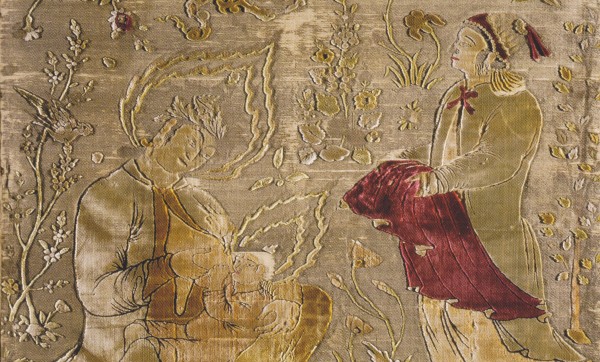
Marco Polo Encounters on Iran and the Persianate World
A lecture series convened by Stefano Pellò
Online conferences
The “Marco Polo Encounters on Iran and the Persianate World” is a lecture series focusing on the transregional dimensions of the Persosphere, in an open chronological and disciplinary perspective. We invite speakers and the audience to reflect on connections, transitions and textures of material and intellectual practices in the interwoven Eurasian territories of Persianate cultures, from the significant junction of Venice. The series is an ongoing project convened by Stefano Pellò.
First cycle
7 April 2021 4:00-5:30pm
Francesca Orsini (SOAS, London)
Studying, Strolling and Overhearing: Persian in Small-Town North India
Please register at this Zoom Link
21 April 2021 5:30-7:00pm
Efe Murat Balıkcioglu (Wellesley College)
Conceptions of Nature in Perso-Islamic Early Modernity: Theories of Causality and Graeco-Arabic Philosophy in the Fifteenth-Century Ottoman Context
Please register at this Zoom Link
6 May 2021 5:30-7:00pm - CANCELLED
Simon Leese (Utrecht University)
Longing for Salma and Hind: Arabic Literature in 18th- and 19th-Century Persianate South Asia
Please register at this Zoom Link
19 May 2021 4:00-5:30pm
Andrea Piras (Università di Bologna)
Veiled Prophets and Manichaean Connections on the Silk Road at the Dawn of Islamization
Please register at this Zoom Link
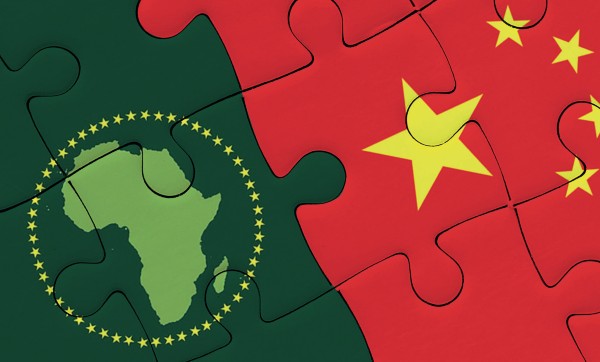
Il soft power di Pechino in Africa nel XXI secolo
23 March 2021 10:30am
Online conference
Professor Sofia Graziani, University of Trento
Over the last two decades, China has deepened its relations with African countries, quickly becoming the first trading partner, as well as one of the main international investors and donors in the African continent. Africa has also increasingly become an important laboratory for public diplomacy and the construction of Chinese soft power.
The event is only for students of the course "China and the world: historical and contemporary perspectives" and will be held in Italian.
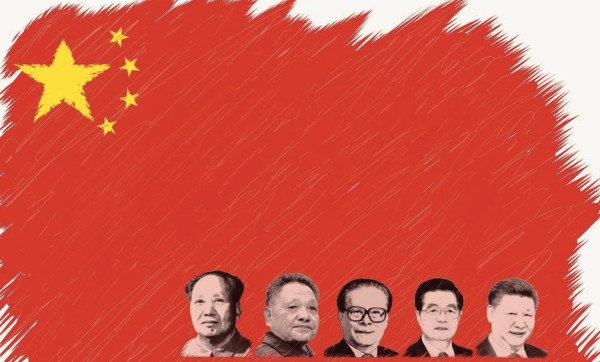
La politica estera della RPC tra isolamento e apertura, tra ‘basso profilo’ e ‘grandeur’
22 March 2021 2pm
Online conference
Professor Barbara Onnis, University of Cagliari
The conference intends to provide an all-encompassing vision of the foundations of Chinese foreign policy, in order to offer an analysis and interpretation of the role that People's China plays in the international context.
The event is only for students of the course "China and the world: historical and contemporary perspectives" and will be held in Italian.
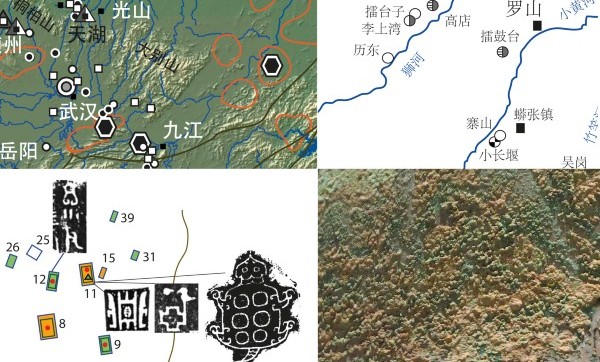
Trading routes between China’s great rivers and emerging regional elites during China’s Bronze Age
19 March 2021 3pm
Online conference
Speaker
Professor Maria Khayutina, Institute of Sinology of the Ludwig-Maximilians-University, Munich
The rise of bronze-casting technology in the Northern and Central China correlated with an intensification of interactions within and between these regions. The necessity to procure raw materials unavailable near the sites of production and consumption, as well as the quest for finished metal products in a gradually expanding area became major factors of interregional communication. It is yet poorly understood how communication between large urban production/consumption centers in the Yellow River valley – the capitals of the so-called “Three Dynasties” – and their suppliers in the Yangzi Valley or elsewhere was organized and how it functioned in sociopolitical, political-economical, and historical-geographical terms. Based on archaeological excavations and surveys and using the GIS technology, the present paper identifies and investigates one (or perhaps “the”) trade route connecting the middle Yangzi Valley with the Central Plains. It analyses the rise and decline of this route during ca. 1600-900 BCE against the background of large-scale geopolitical processes in the early Chinese interaction sphere. It suggests that the location in “strategic bottlenecks” (Earle et al. 2015) through which metal ores, finished metal products and other prestige goods were transported northwards or southwards facilitated the emergence of new socio-political elites among local groups, who, in their turn, were instrumental in the maintenance of trading networks but vulnerable in the face of economic risks.
Maria Khayutina currently holds the position of a guest professor at the Institute of Sinology of the Ludwig-Maximilians-University of Munich. Her research focuses on social and political history of Early China, including early polity formation, agency in the production of social and political structures, kinship organization, historical geography, memory culture and the history of concepts. The present case study constitutes a part of her forthcoming book Kinship, Marriage and Politics in Early China (13-8 c. BCE) in the Light of Ritual Bronze Inscriptions, planned for publication with Routledge.
Register in advance for this meeting at this link.
After registering, you will receive a confirmation email containing information about joining the meeting.
The conference is organised by Professor Maddalena Barenghi and Professor Laura De Giorgi
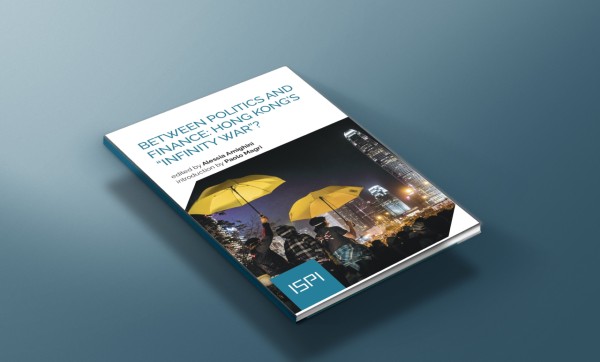
Presentation of the ISPI Report. Between Politics and Finance. Hong Kong's "Infinity War"? 2020
14 December 2020 3.45pm
Online conference
Presentation of the ISPI Report. Between Politics and Finance. Hong Kong's "Infinity War"? 2020
Edited by Alessia Amighini
Speakers
Alessia Amighini
Italian Institute for International Political Studies, Milan and University of Piemonte Orientale
Guido Samarani
Marco Polo Center for Global Europe-Asia Connections (MaP), Department of Asian and North African Studies
Giulia Sciorati
Italian Institute for International Political Studies, Milan
Introduction
Laura De Giorgi
Department of Asian and North African Studies
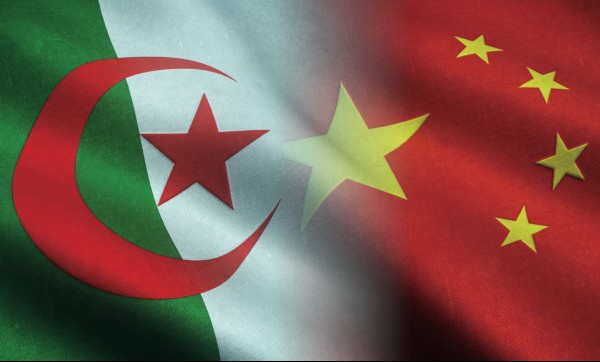
The Sino-Algerian Economic Relations: Trends, Features and Problems
10 December 2020, 2pm - 4pm
Online conference
Speakers
Adel Hamaizia
Middle East and North Africa Programme, Chatham House
Fatiha Talahite
French National Centre for Scientific Research (CNRS)
Chuchu Zhang
School of International Relations and Public Affairs, Fudan University
Francesco Saverio Leopardi
Marco Polo Center for Global Europe-Asia Connections, University Ca’ Foscari of Venice
Introduced by Maria Cristina Paciello University Ca’ Foscari of Venice
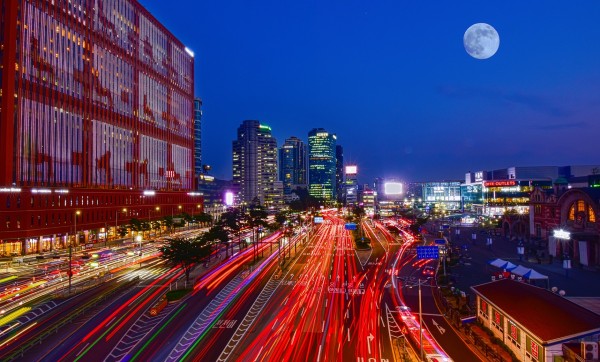
Korea at the Cross Roads between China’s Belt and Road Initiative and US’ Indo-Pacific Strategy
26 November 2020
Online conference
Keynote Speaker:
Prof. Jihwan Hwang, Department of International Relations, The University of Seoul, Korea
Discussants:
Prof. Eun-Jeung Lee, Graduate School of East Asian Studies, Free University of Berlin, Germany
Prof. Hannes B. Mosler, IN-EAST, Institute of Political Science, University of Duisburg-Essen, Germany
Prof. Renzo Riccardo Cavalieri, DSAAM, Ca’ Foscari
Prof. Youngmi Kim, Edinburgh University, UK
Ms. Junko Terao, Editor di Asia e Pacifico, Internazionale, Rome
Moderator: Jong-Chol An, DSAAM, Ca’ Foscari
In the 21st century, China and the US are pushing their own unique visions of the world order: the Belt and Road Initiative and the Into-Pacific Strategy, respectively. Korea is very uniquely positioned in terms of geo-politics and the new world order, so that even the Korean peninsula has a potential to influence the two conflicting world visions with rising economic and cultural power.
This roundtable will invite several experts on this issue with different angles and include a keynote speech by Dr. Jihwan Hwang at the University of Seoul, Korea whose expert knowledge is on US policy and Korea.
Organizer: Department of Asian and North African Studies (Dr. Jong-Chol An) funded by Marco Polo/ Center for Global Europe-Asia Connections
For information please contact: jongchol.an@unive.it
